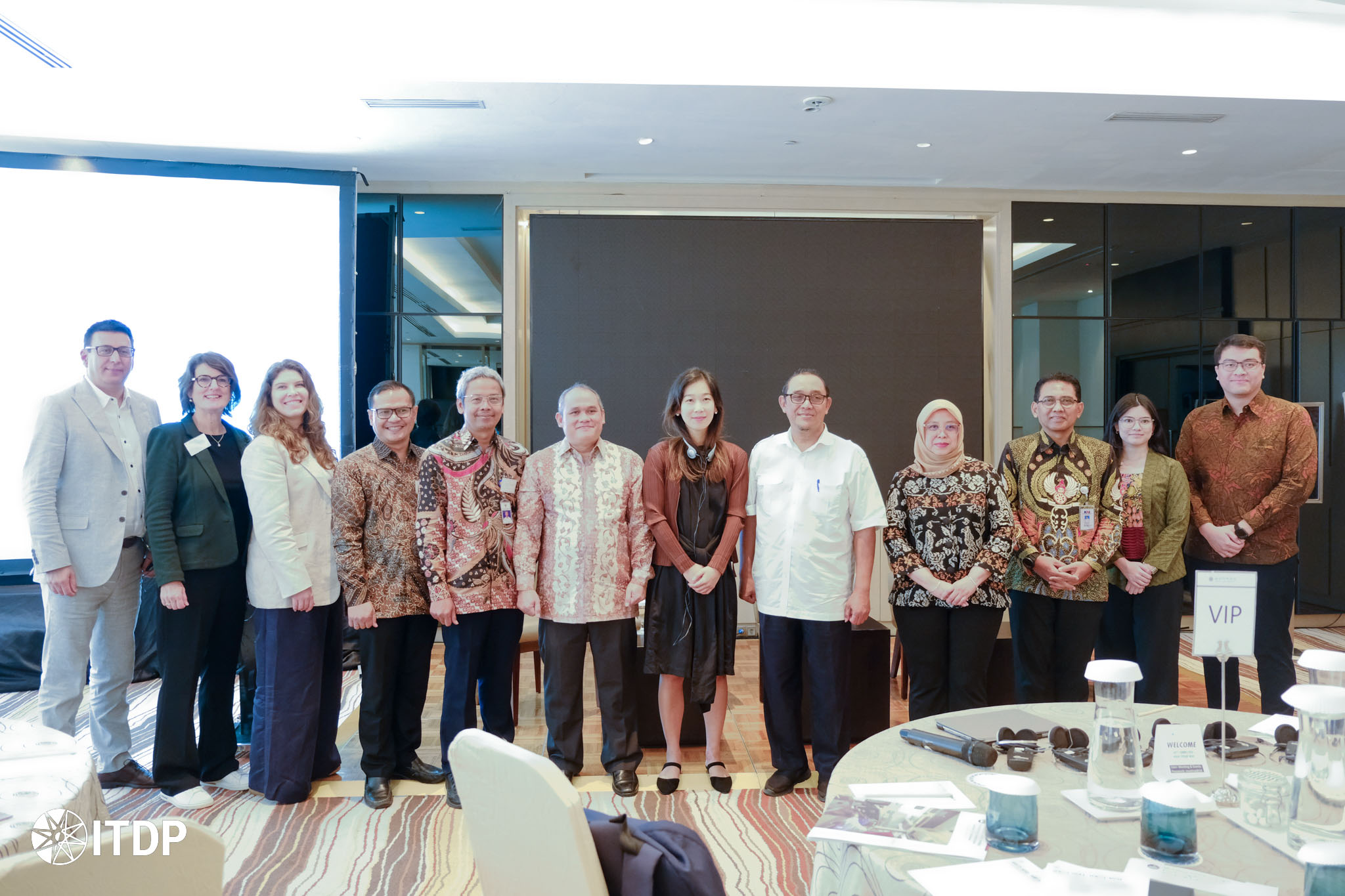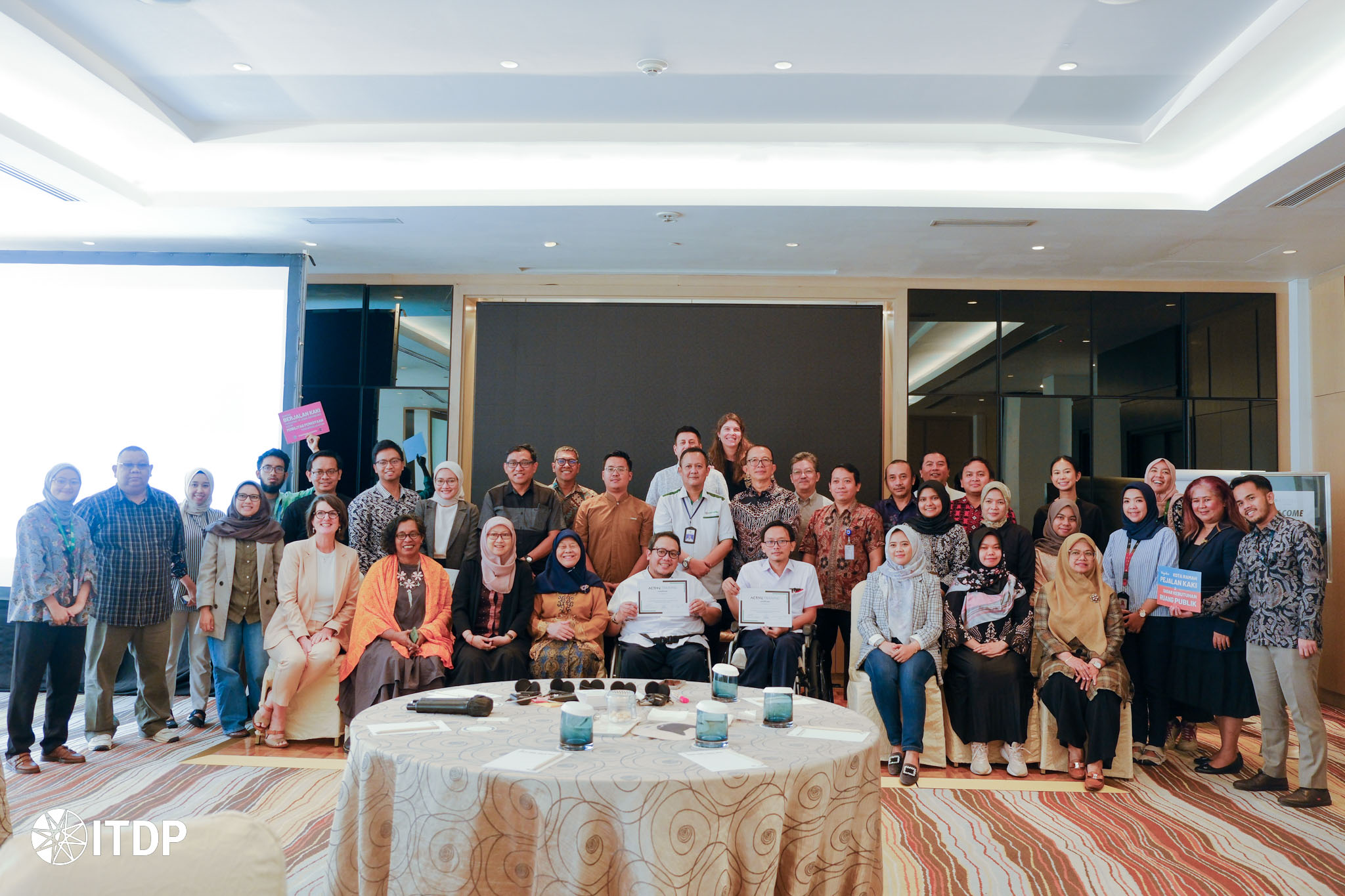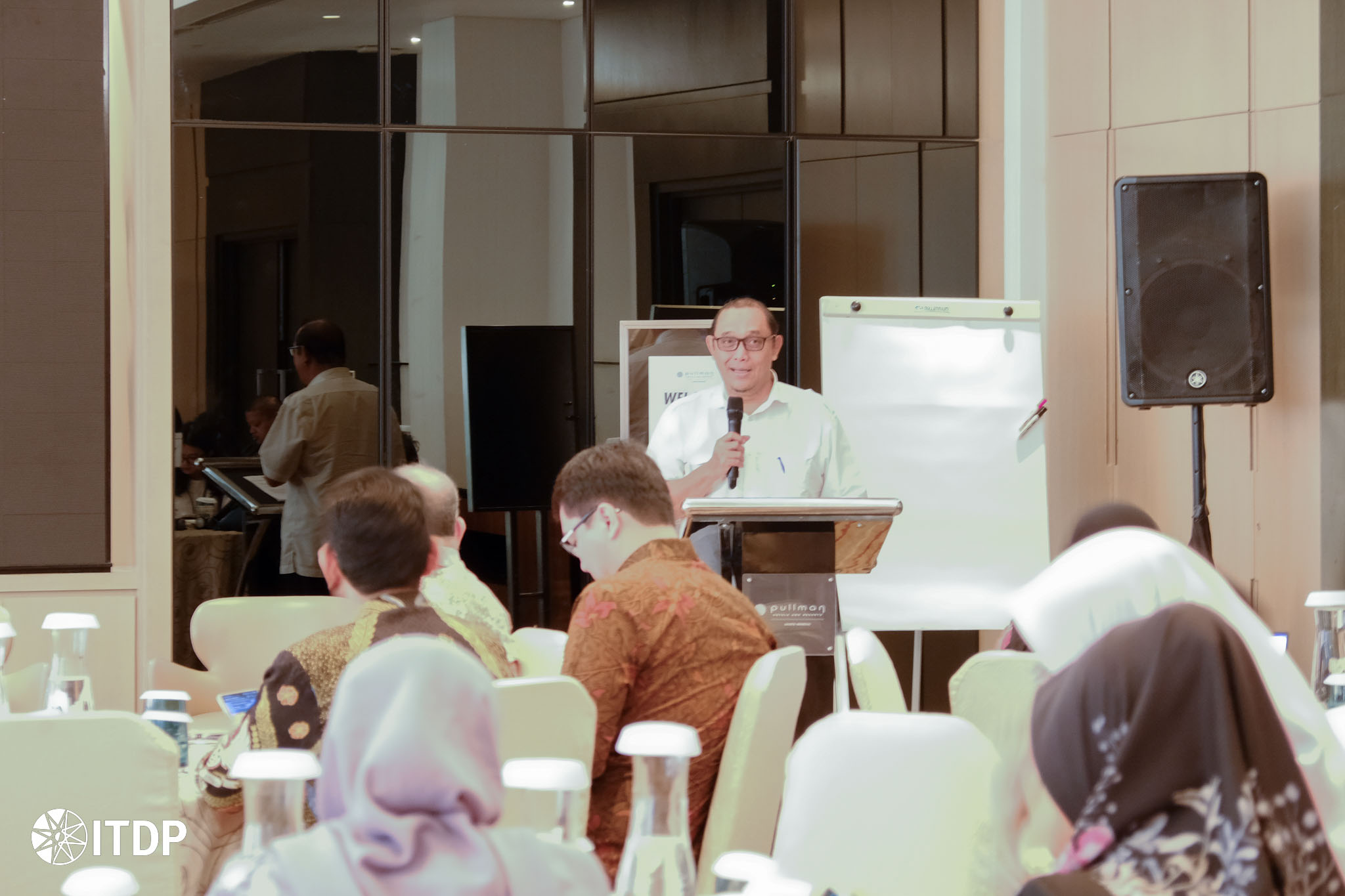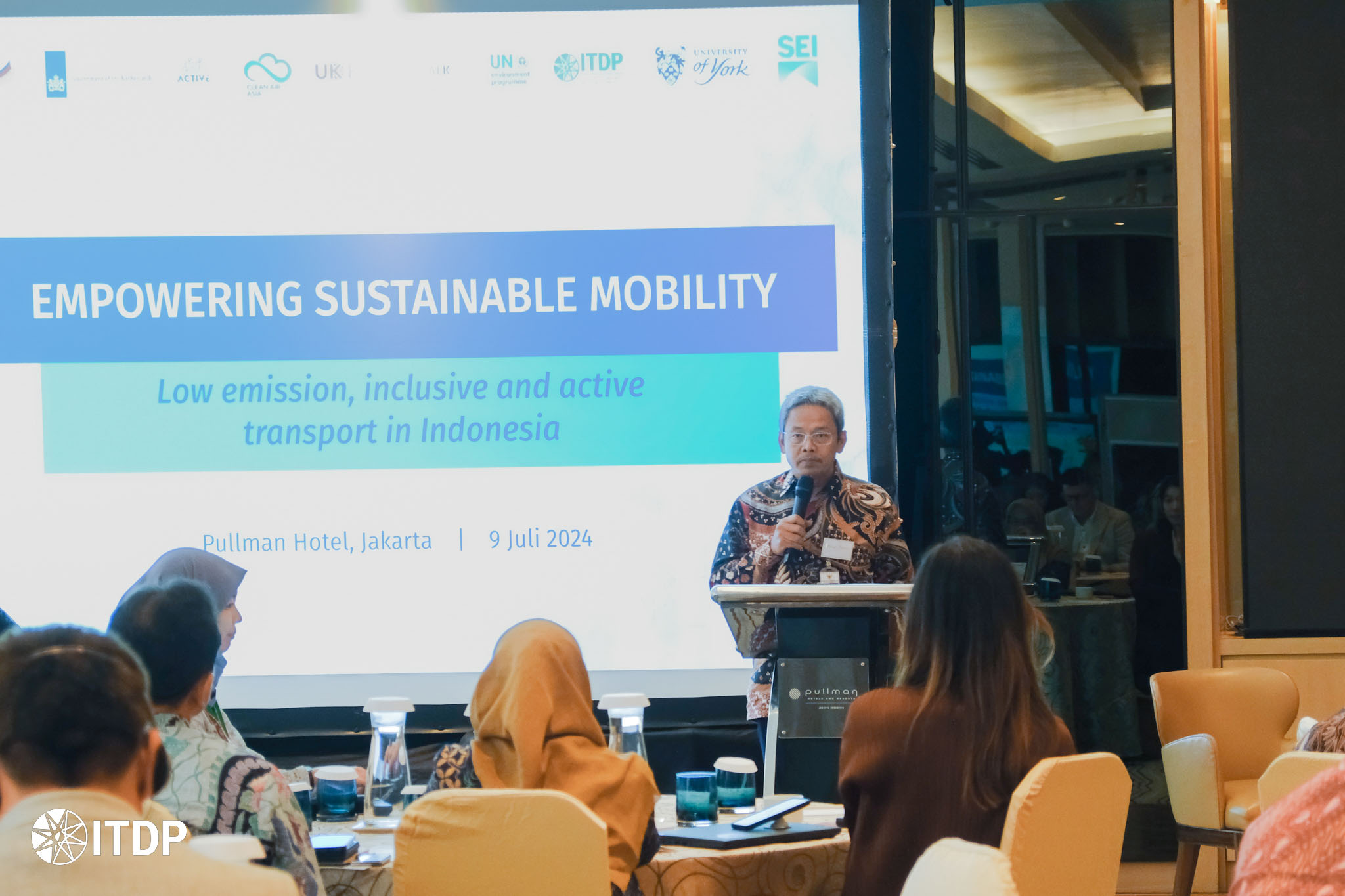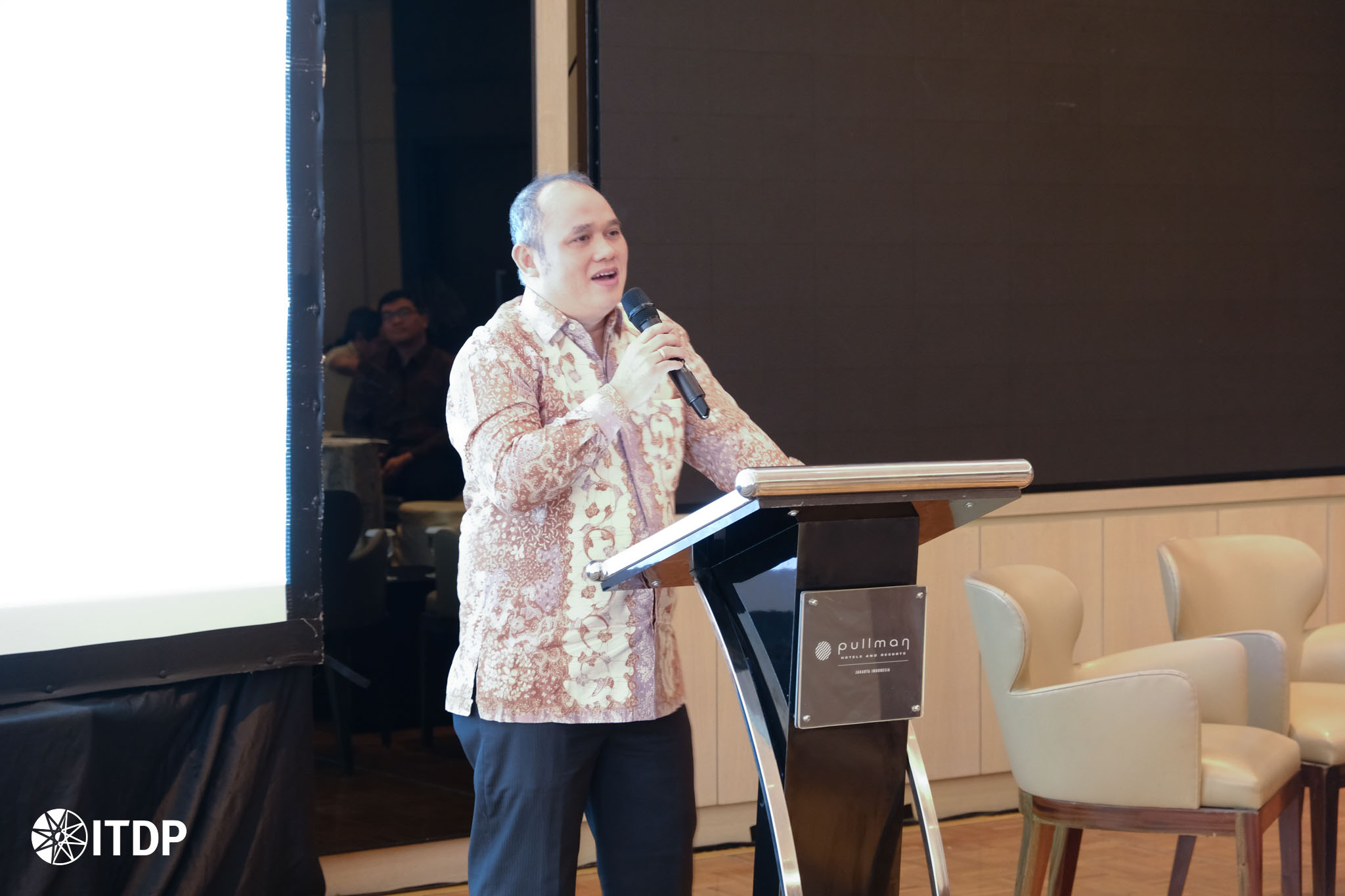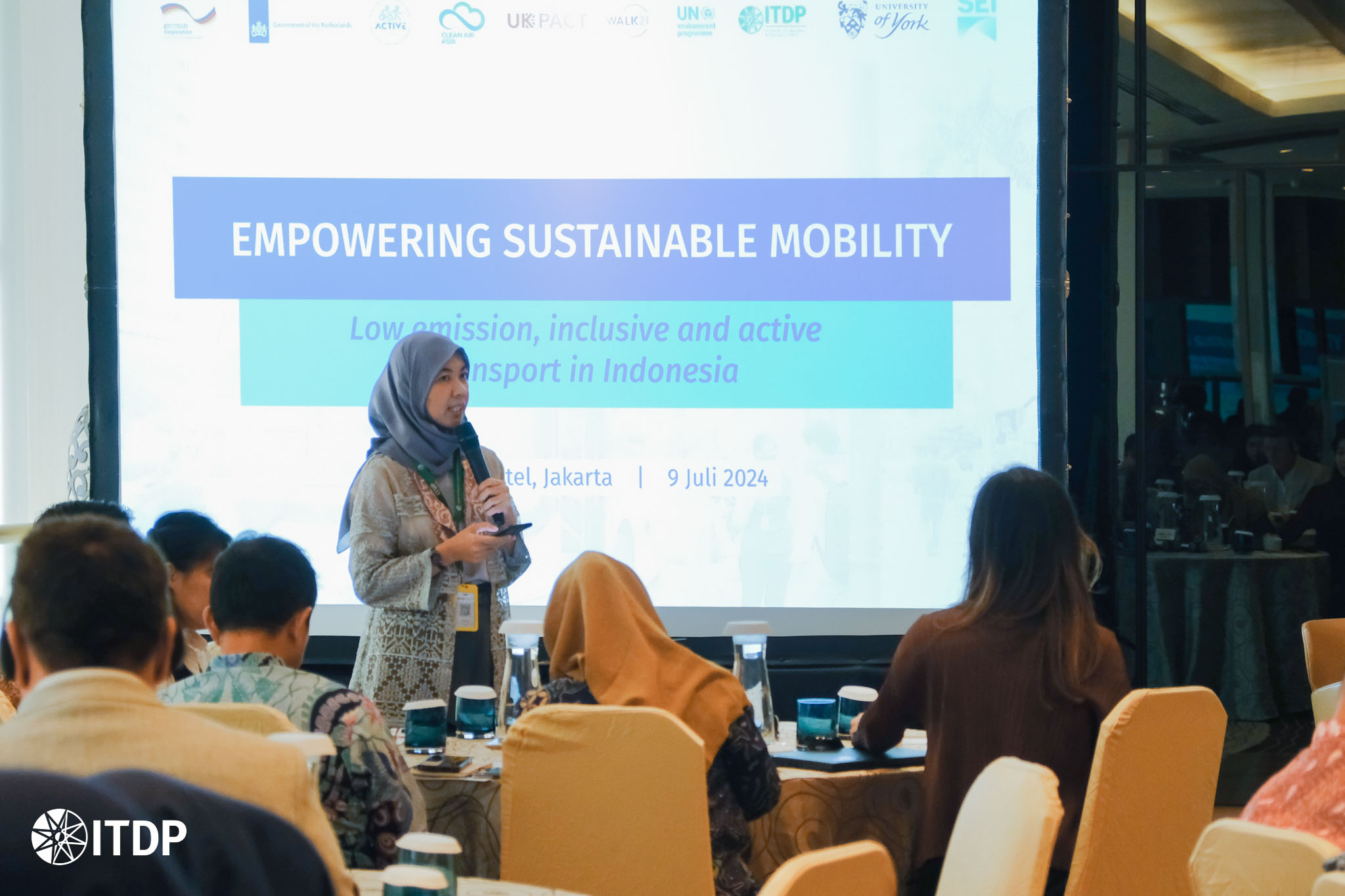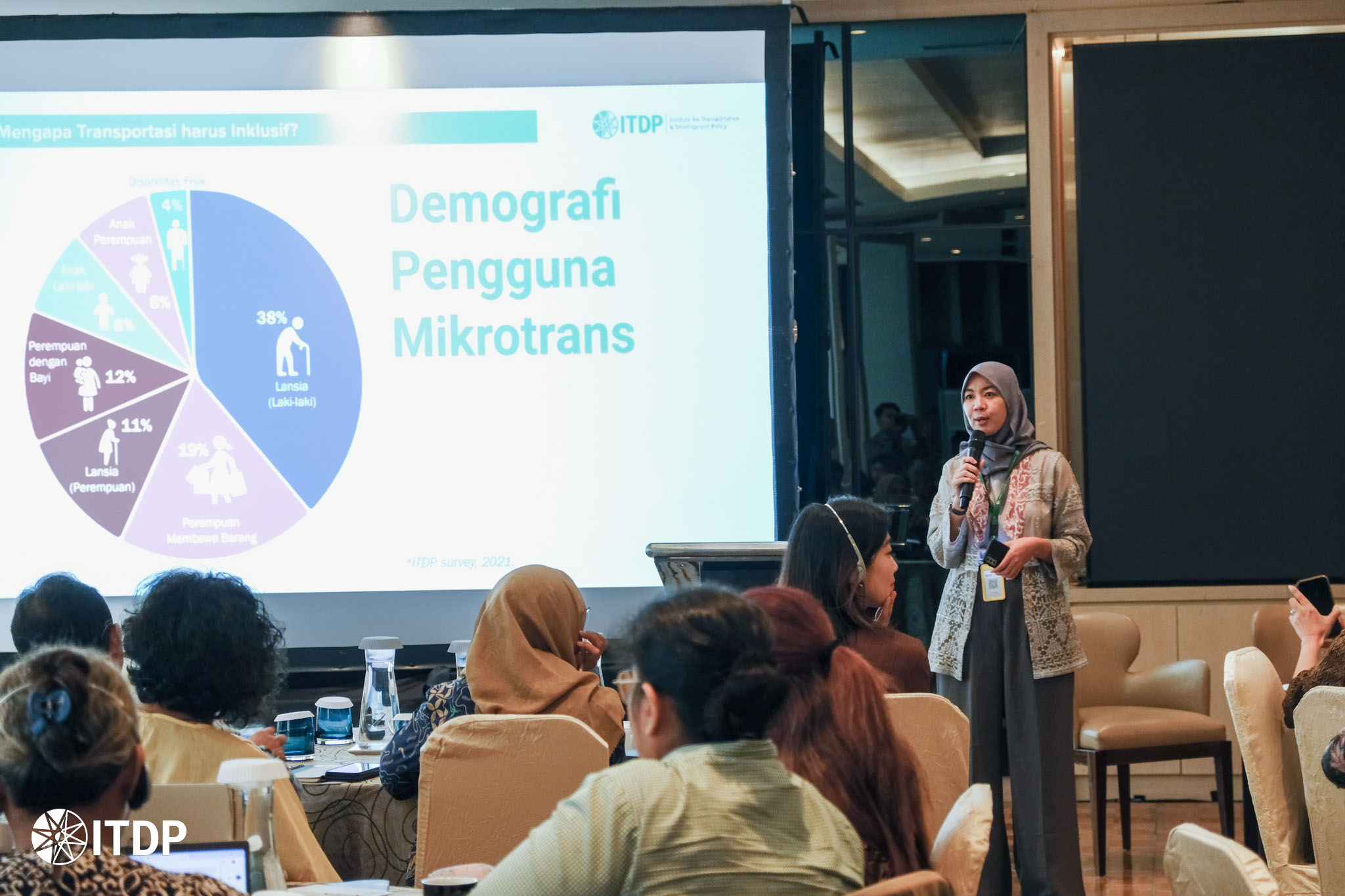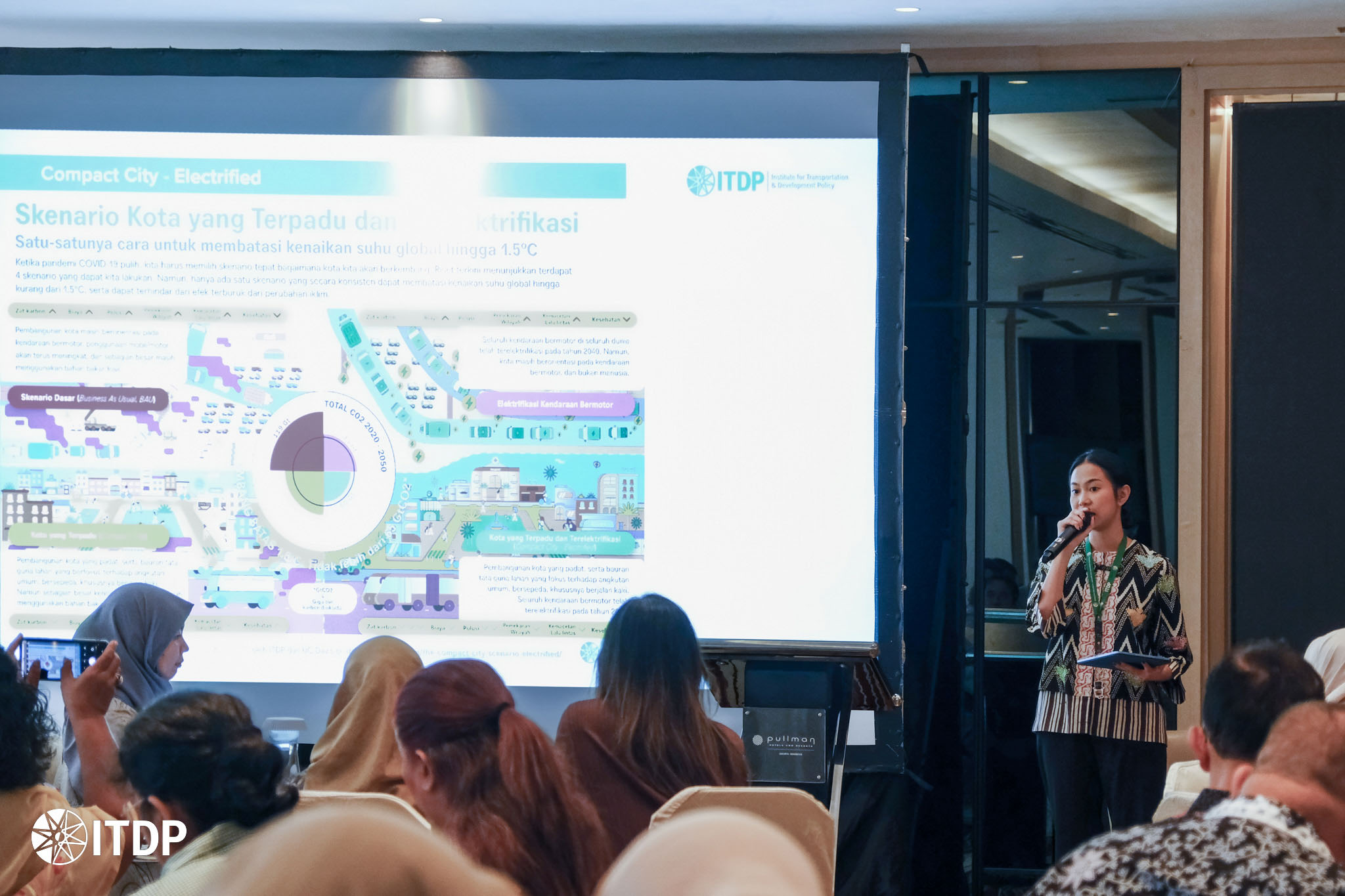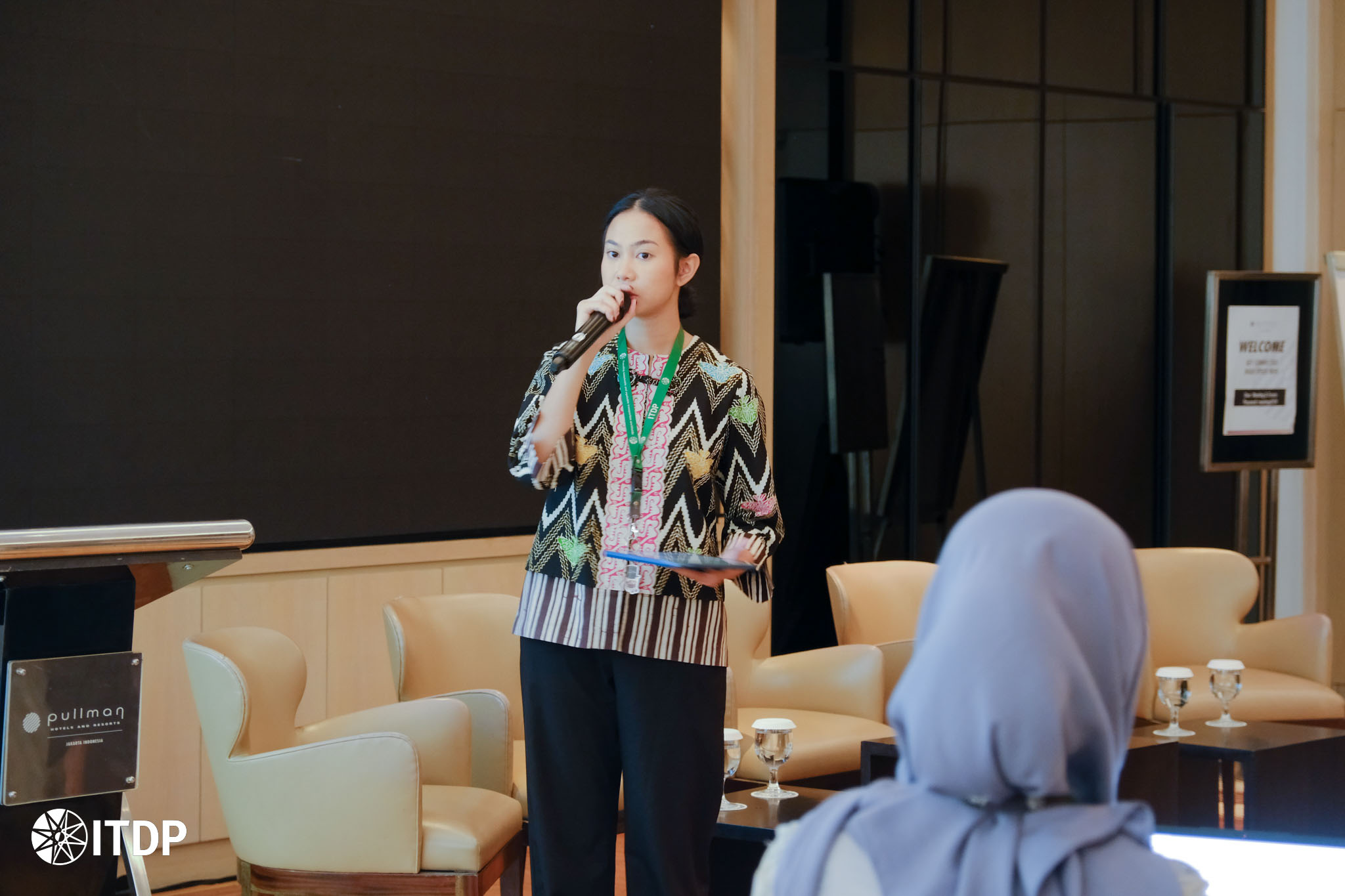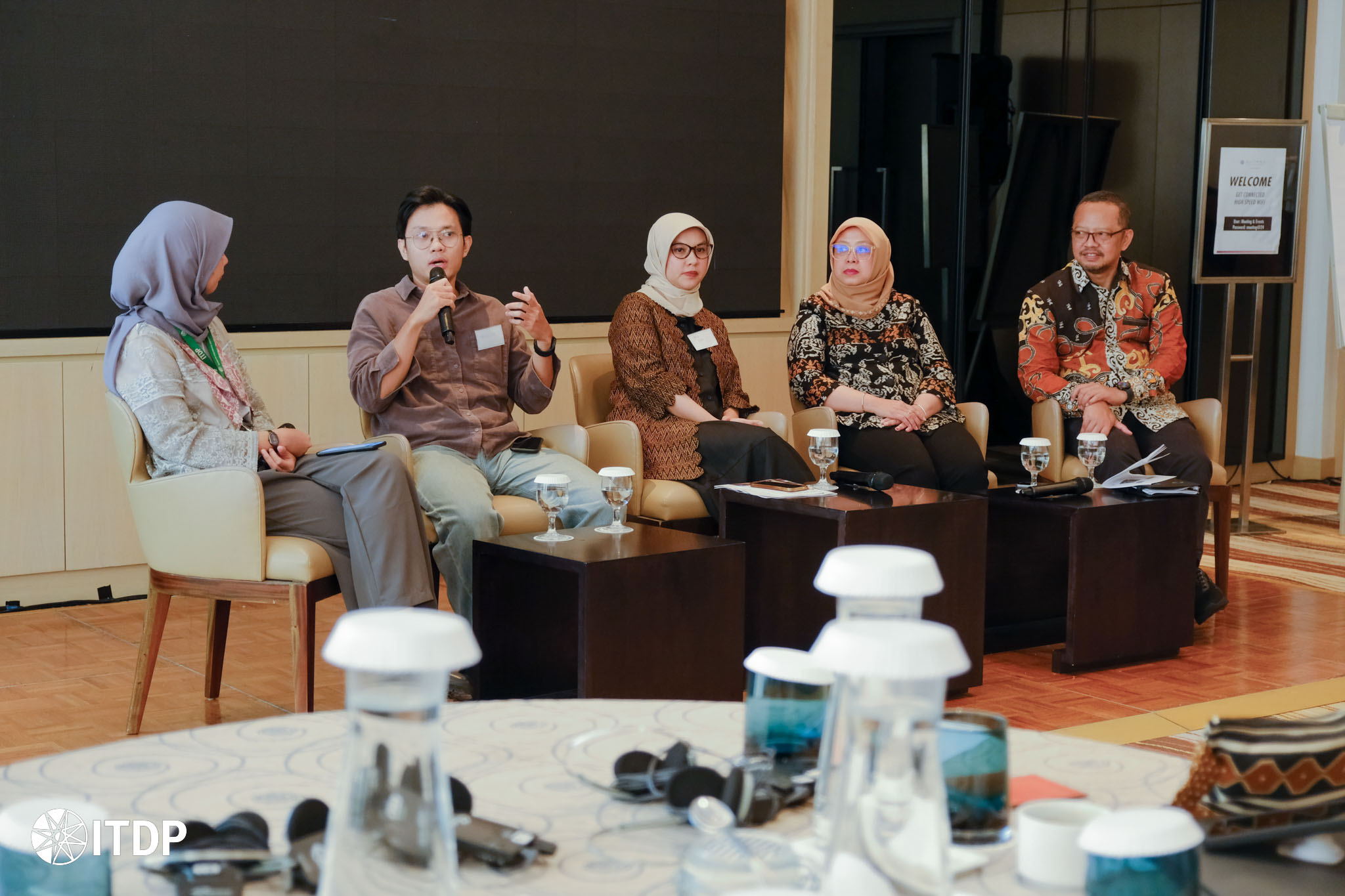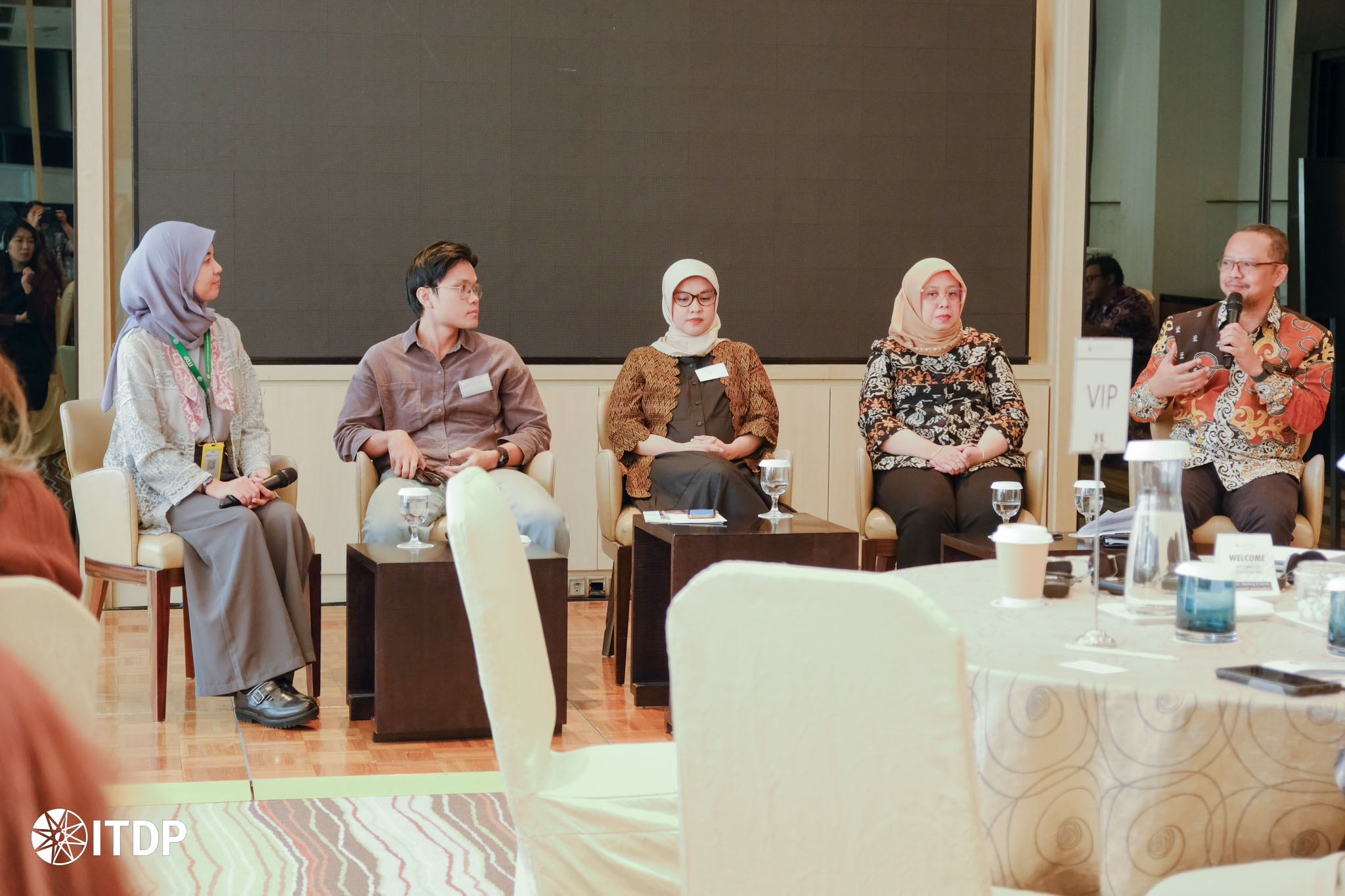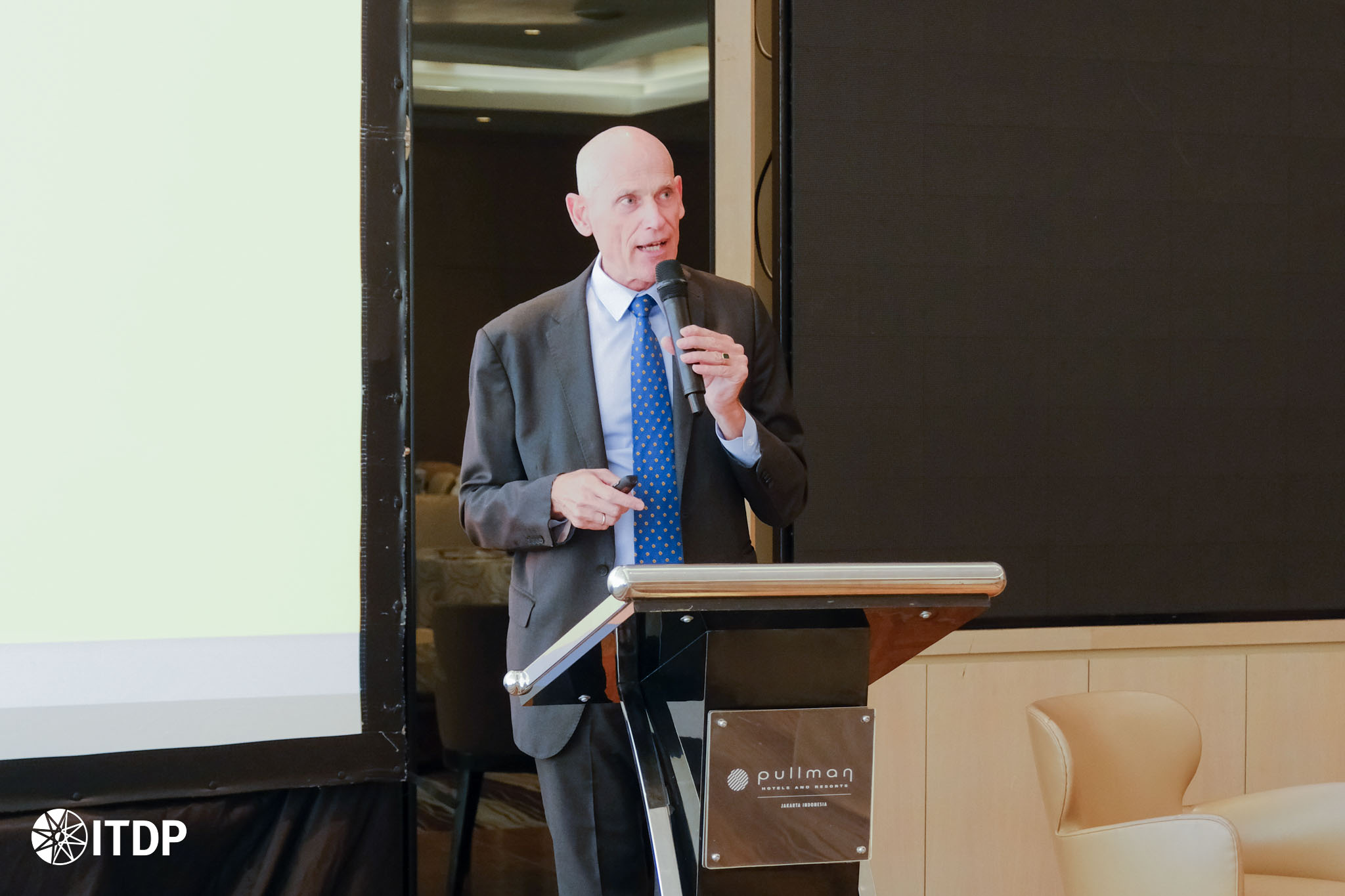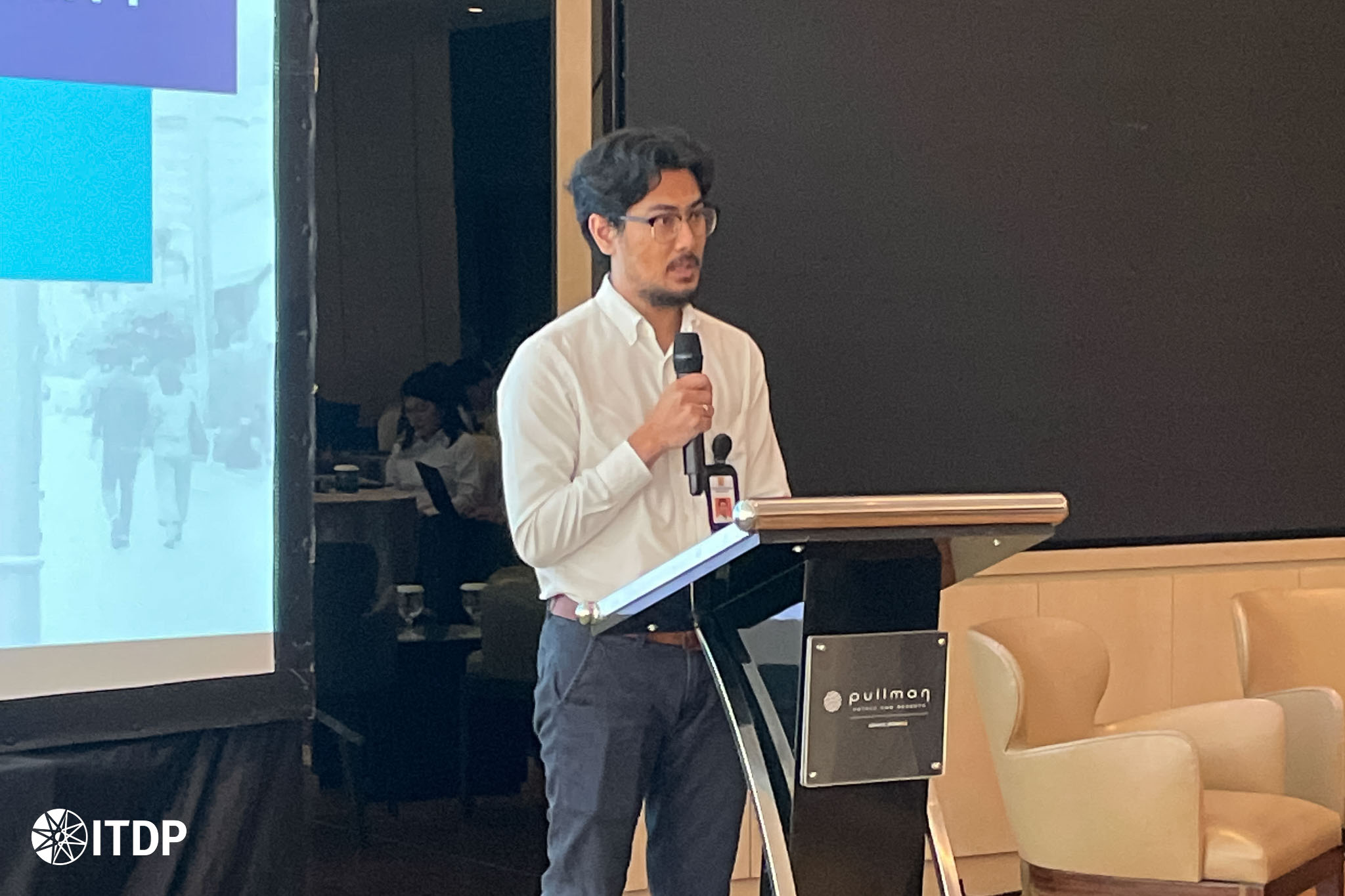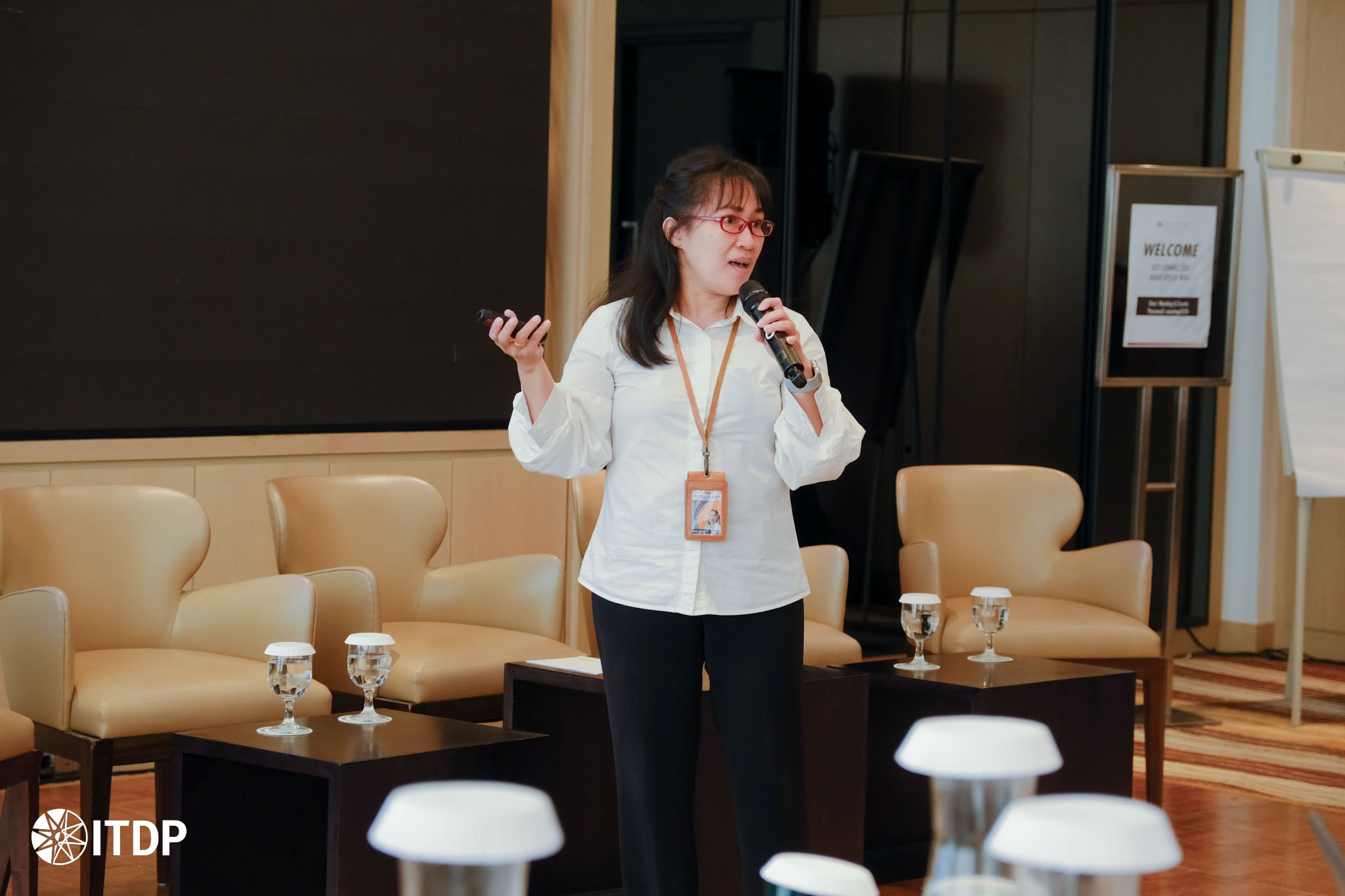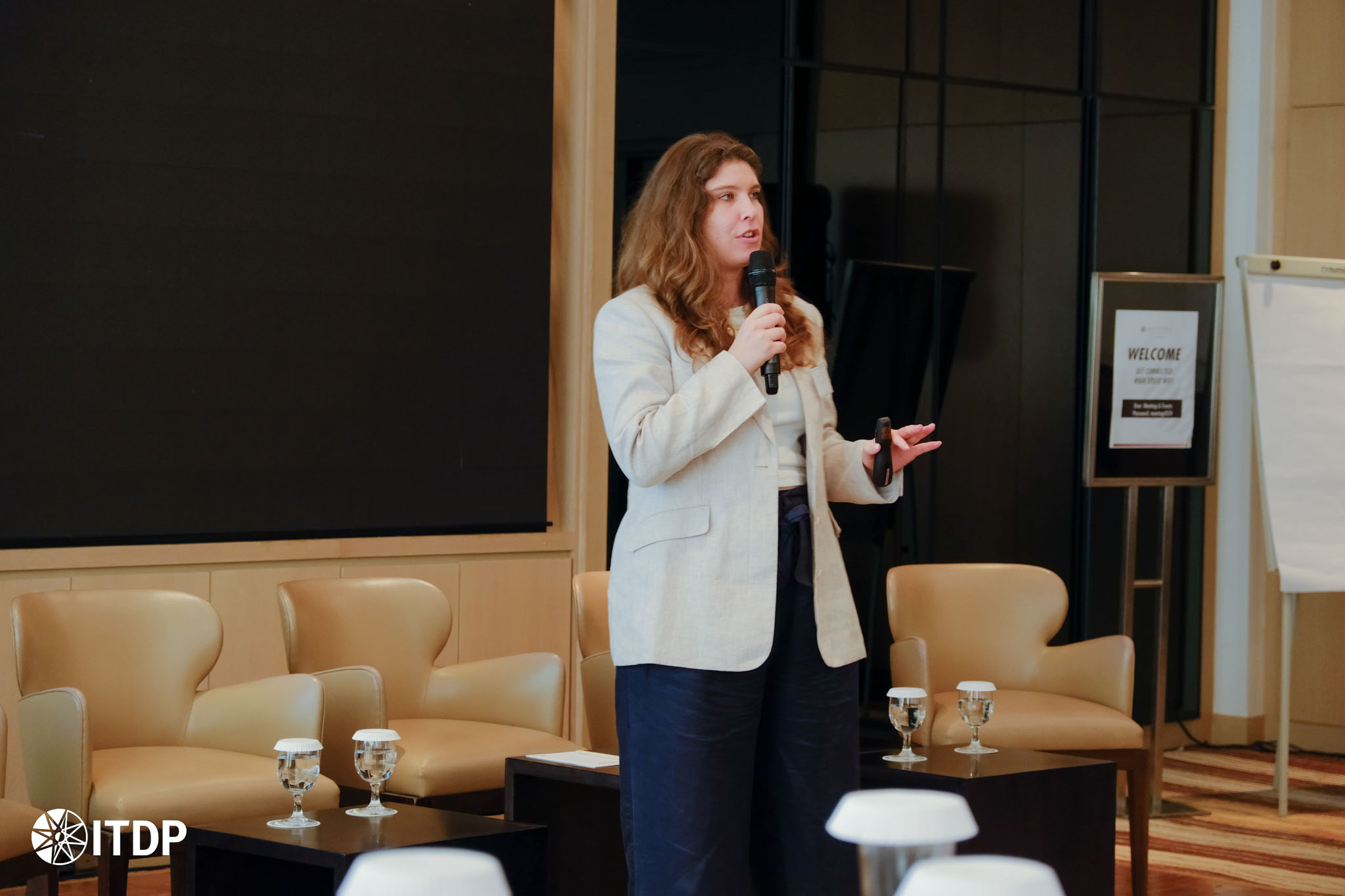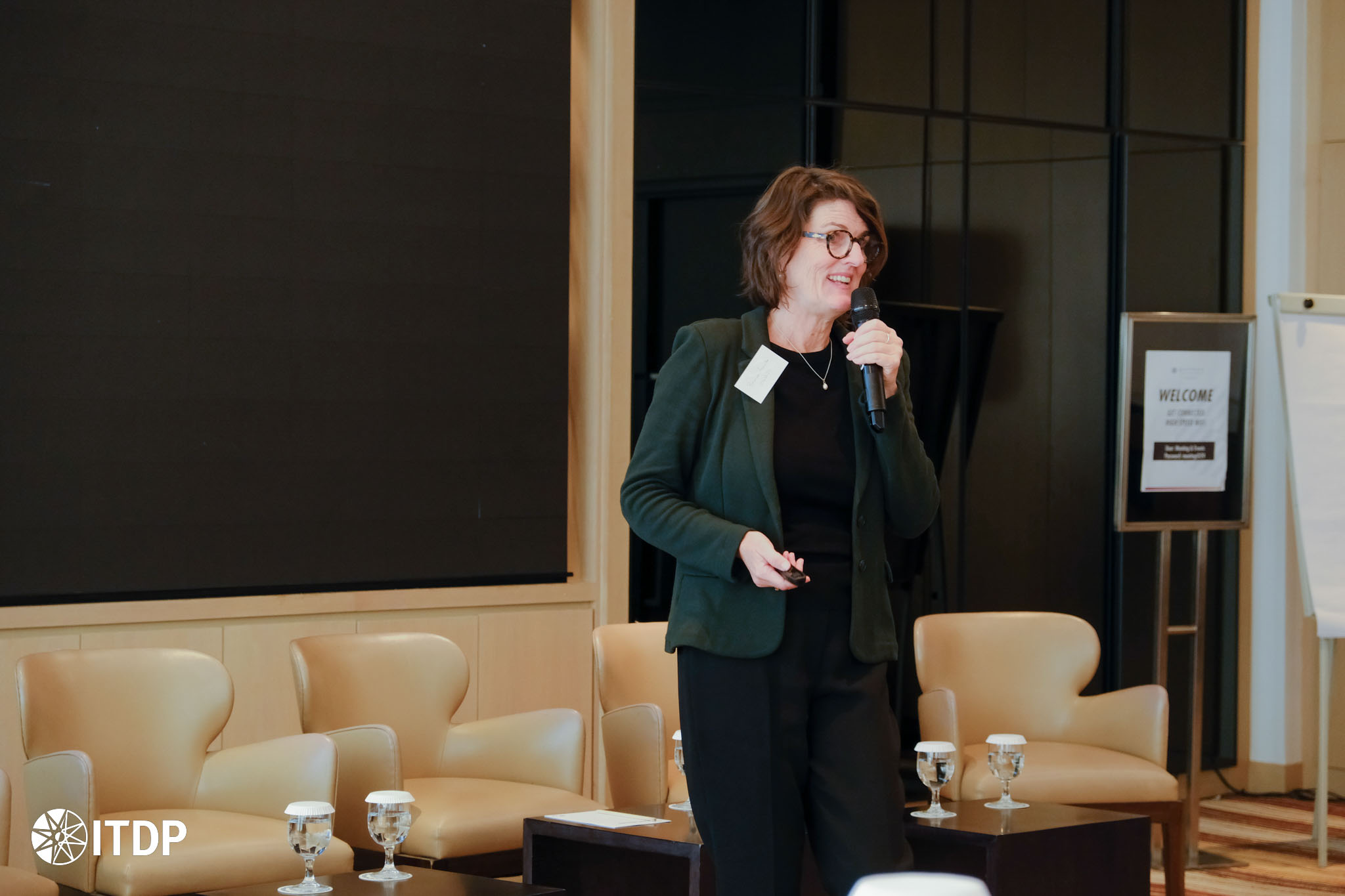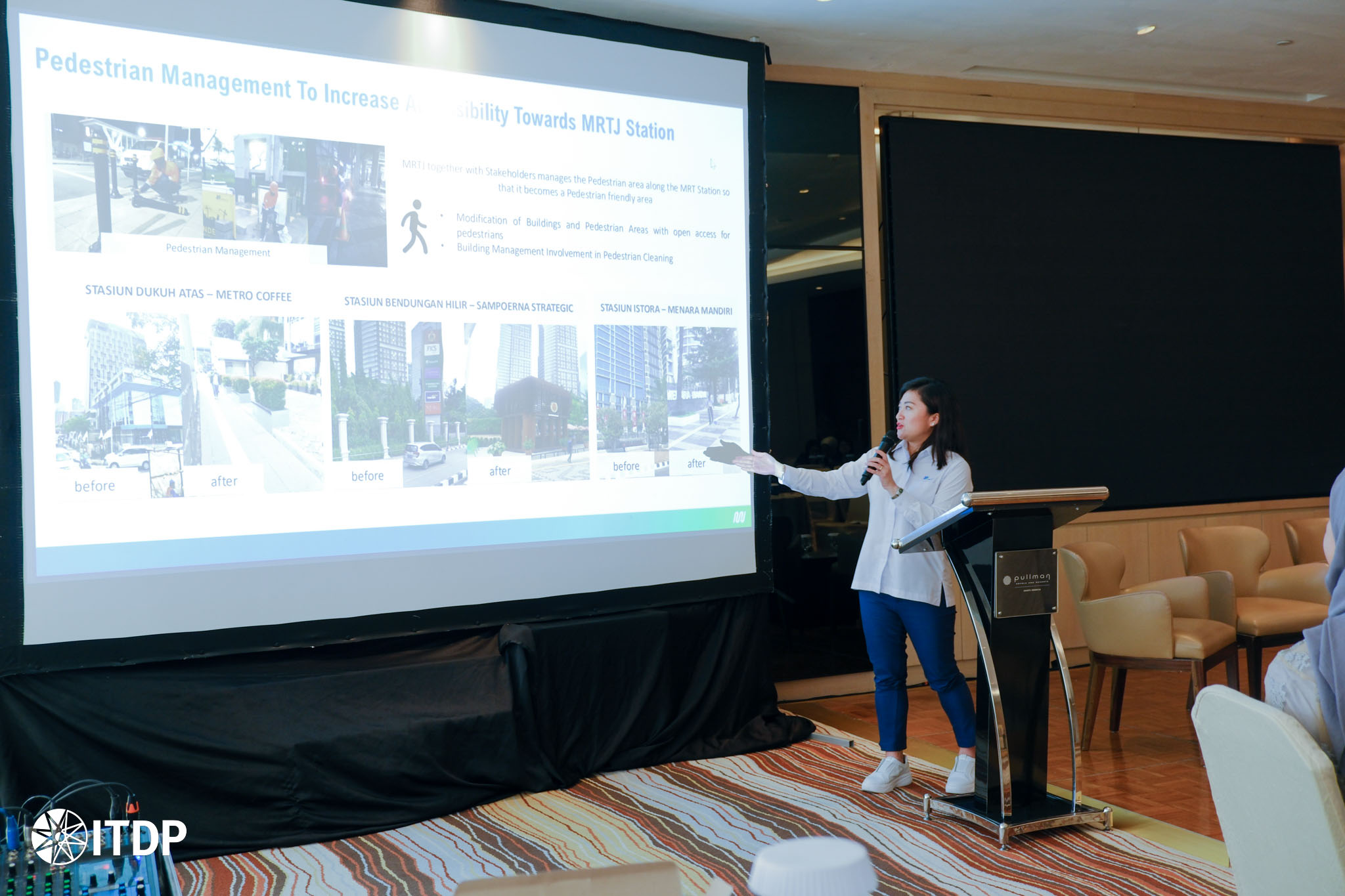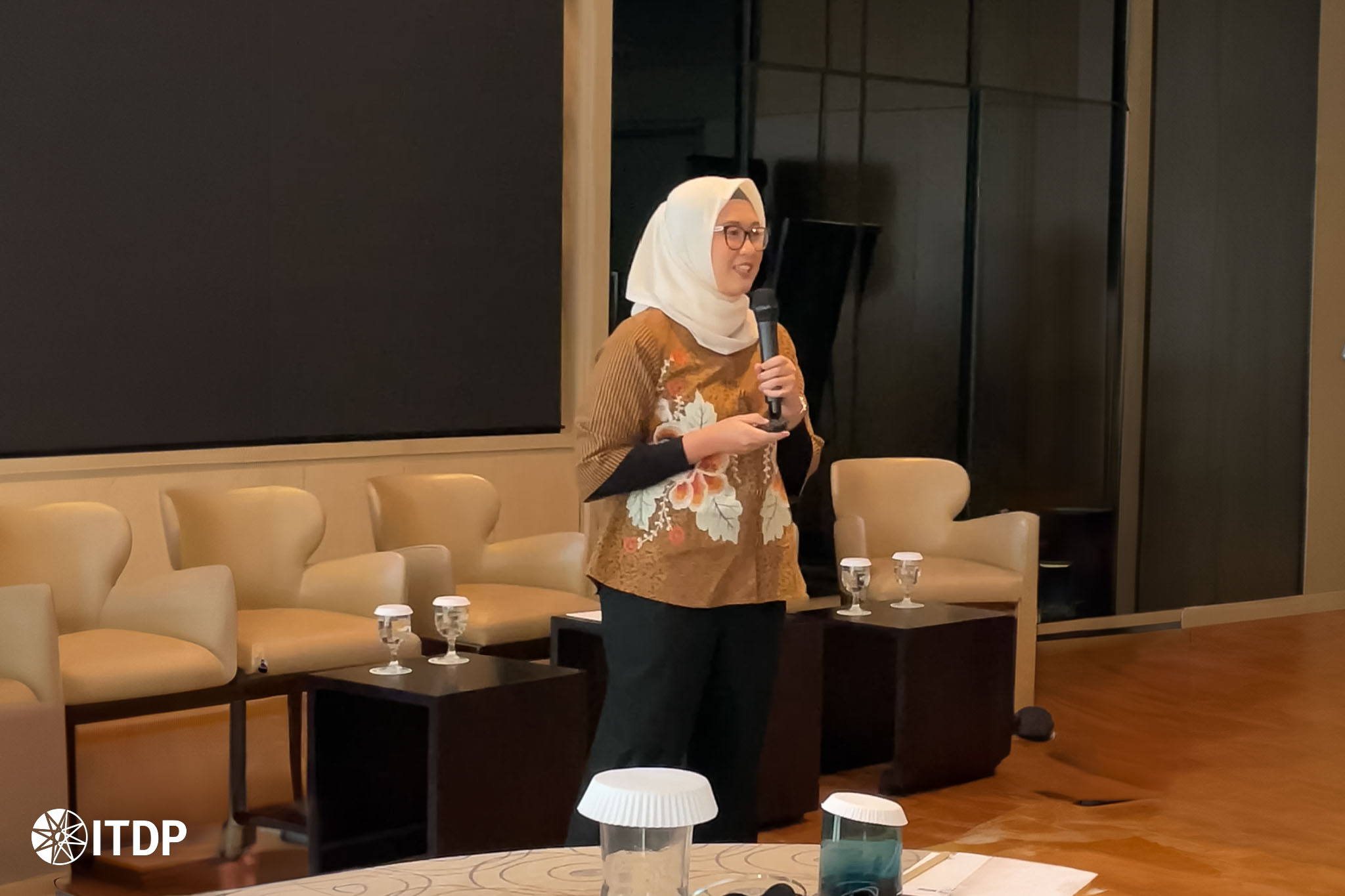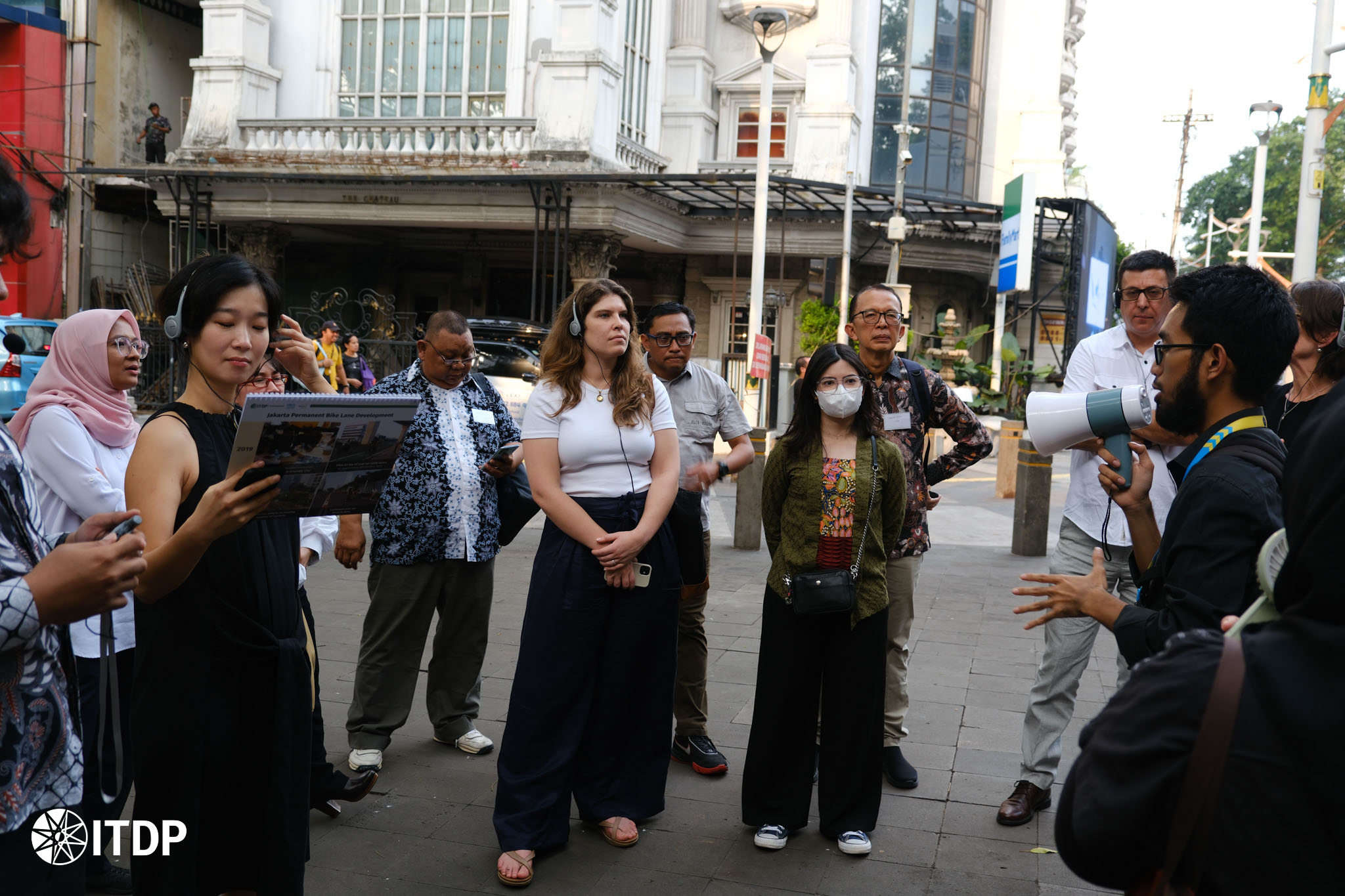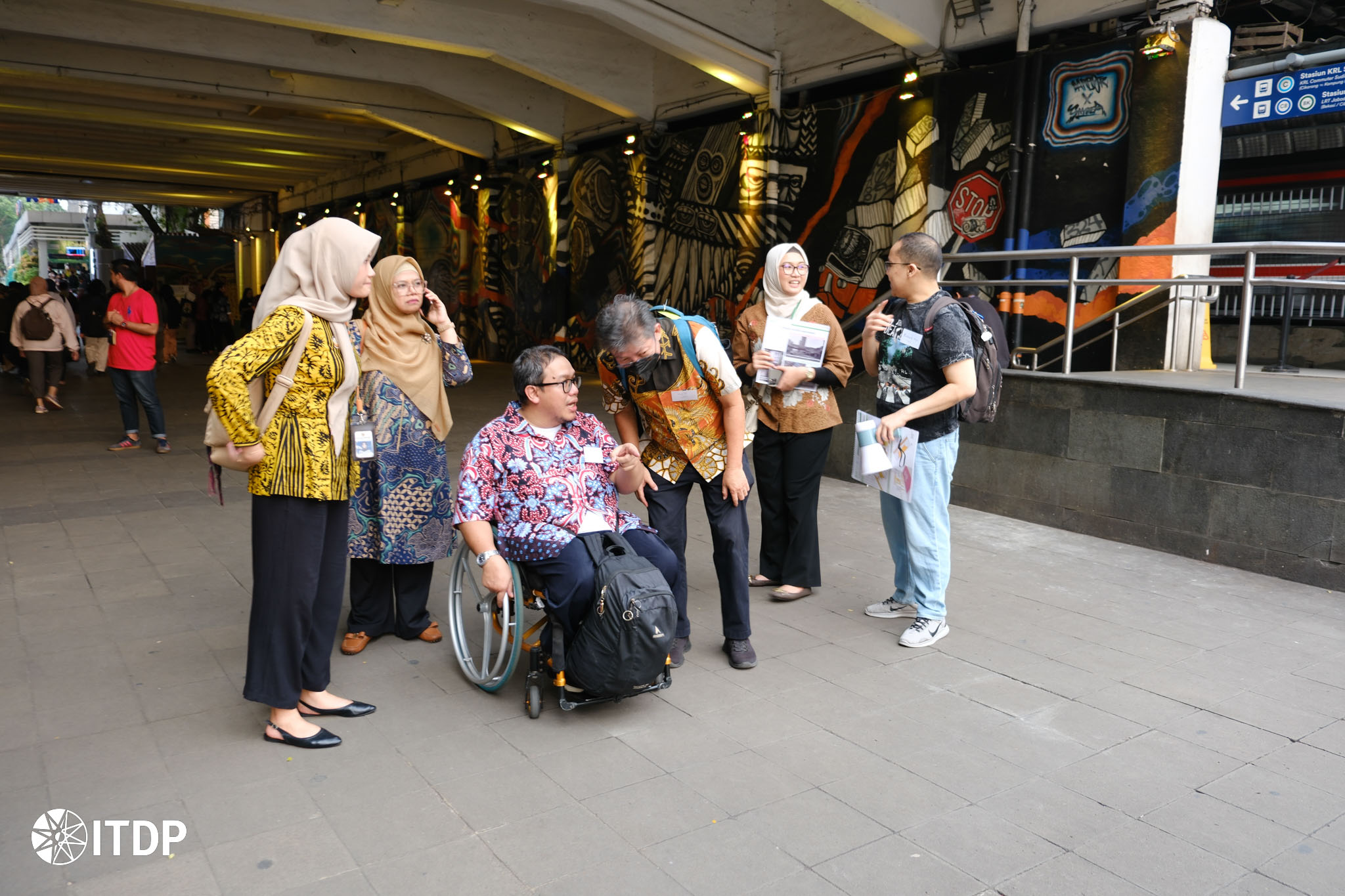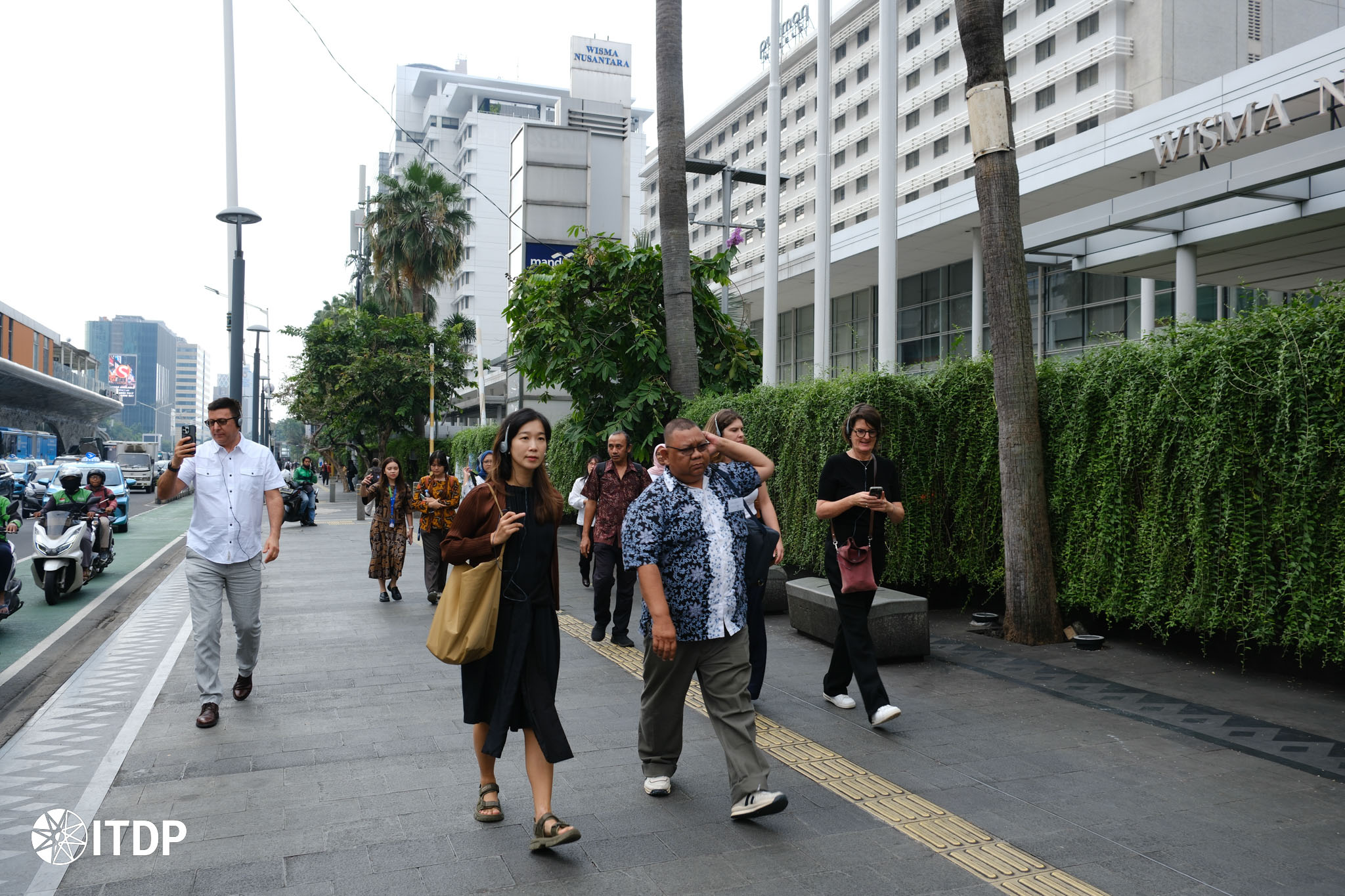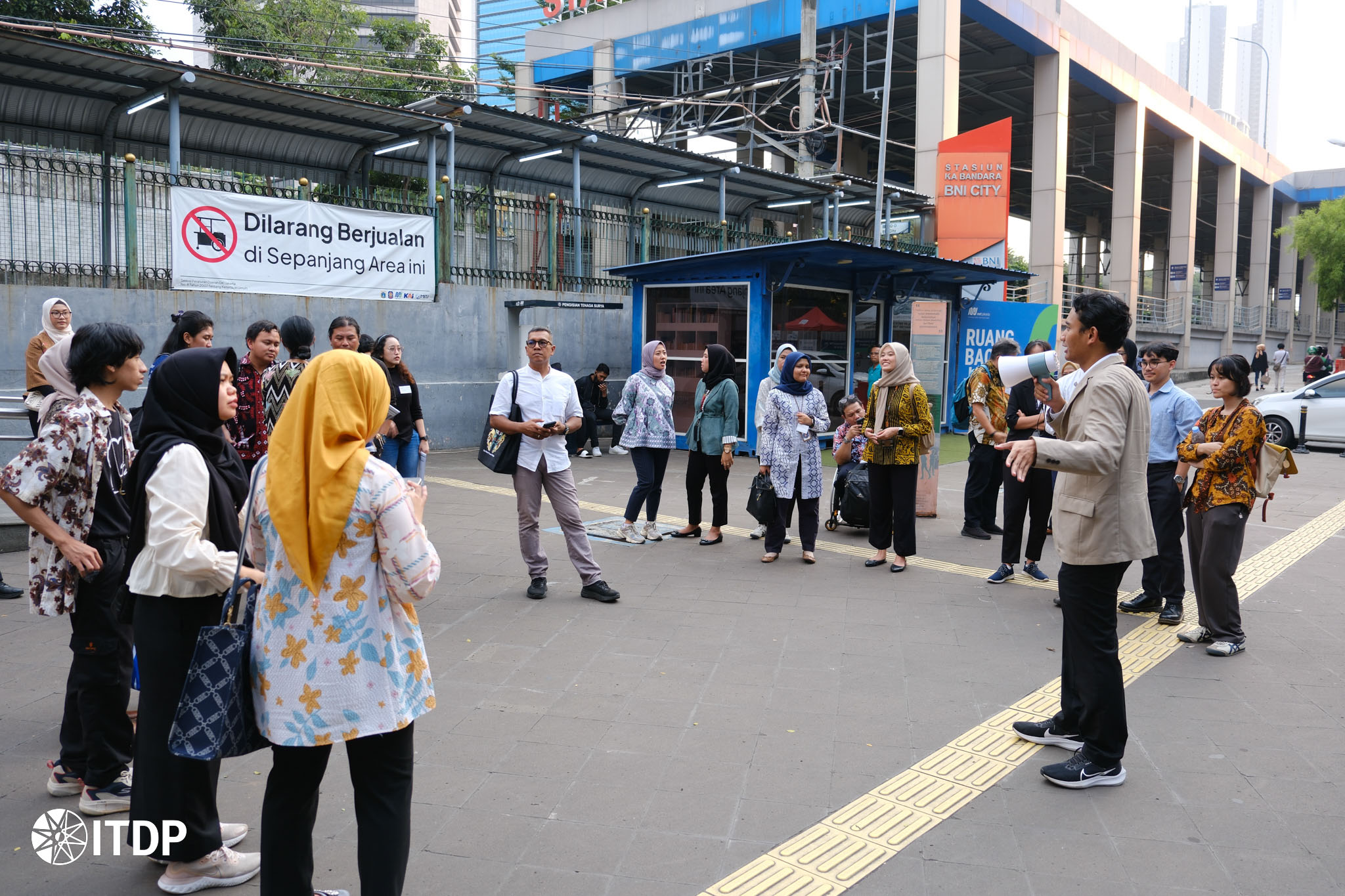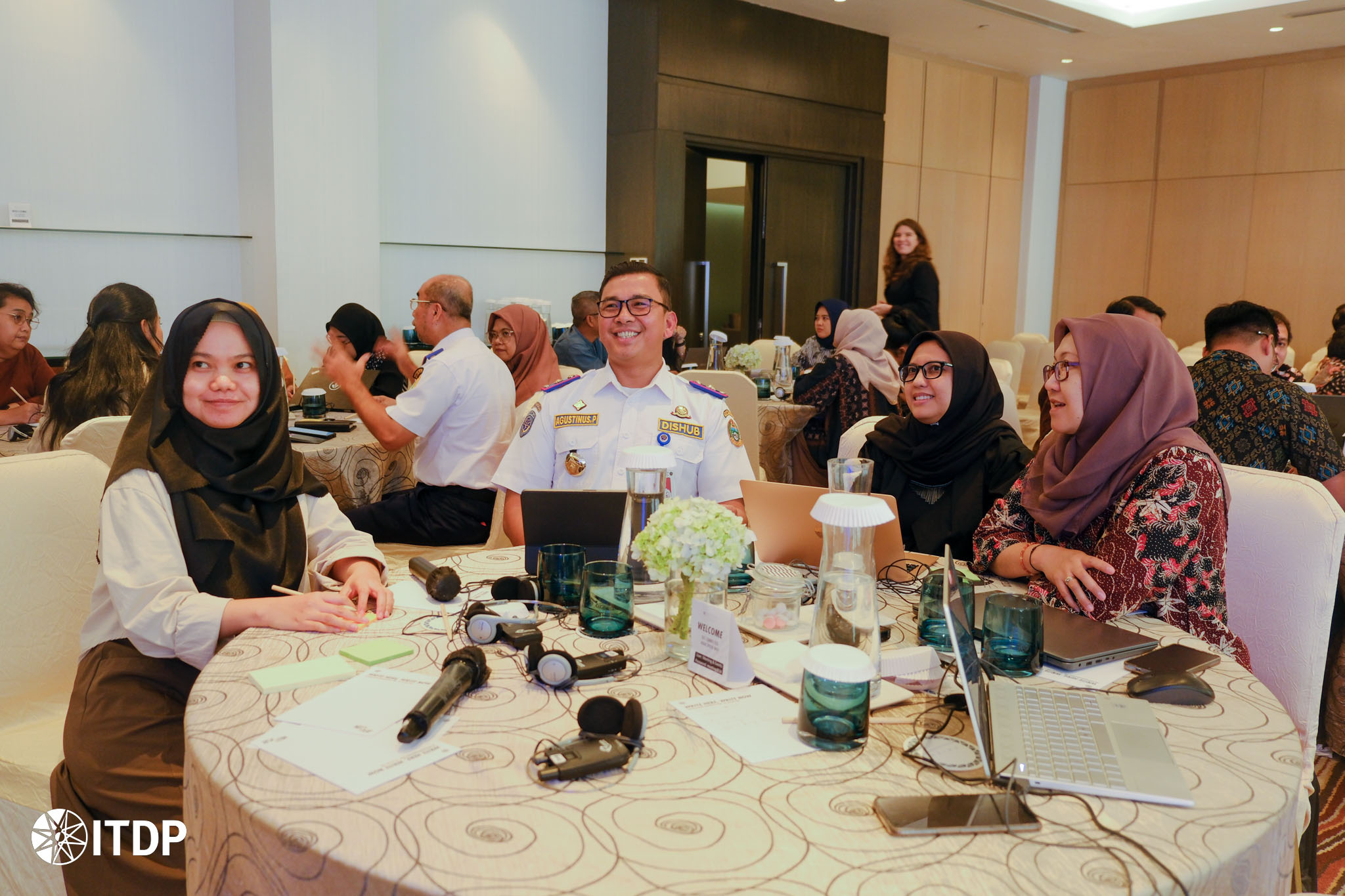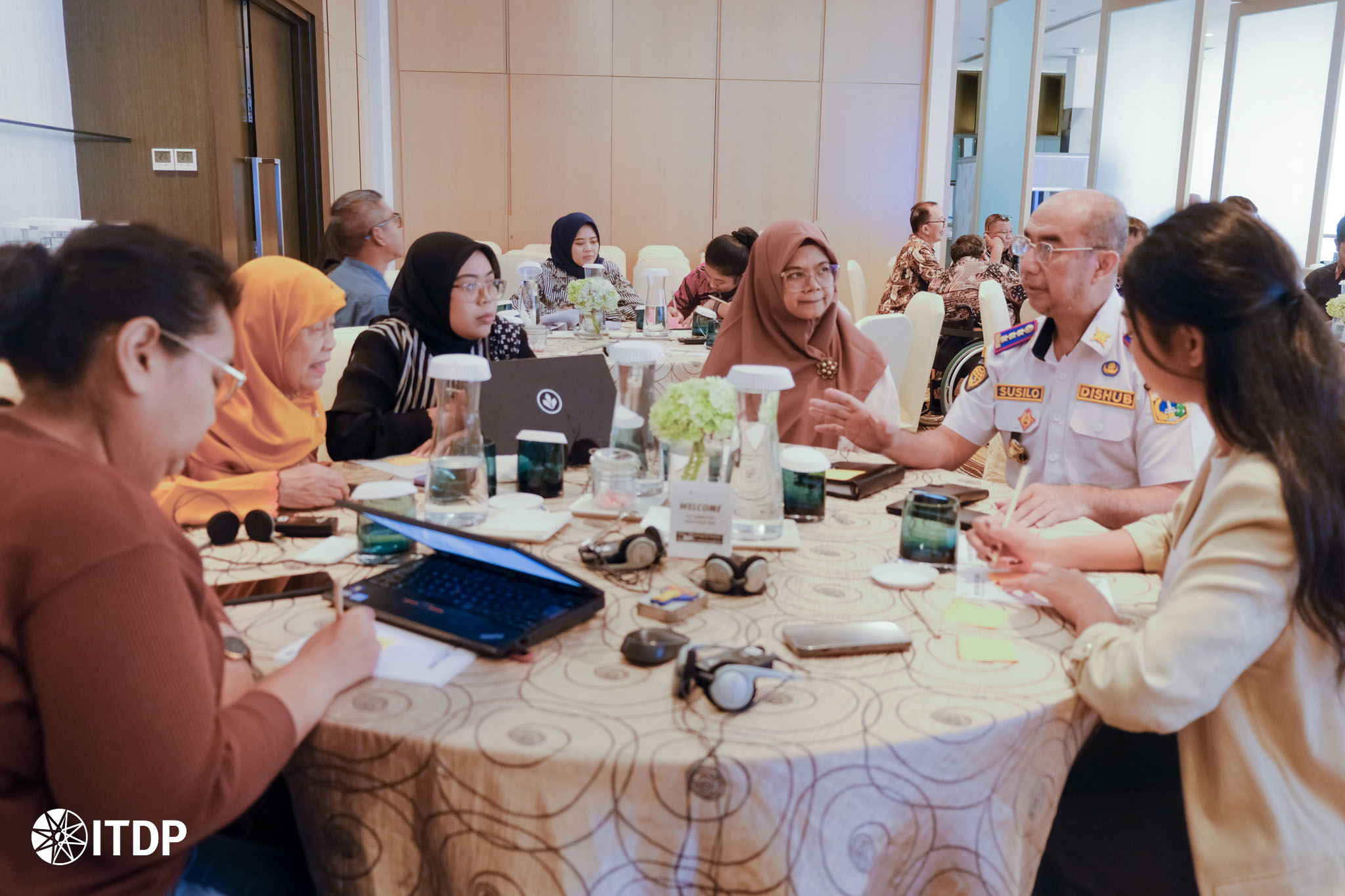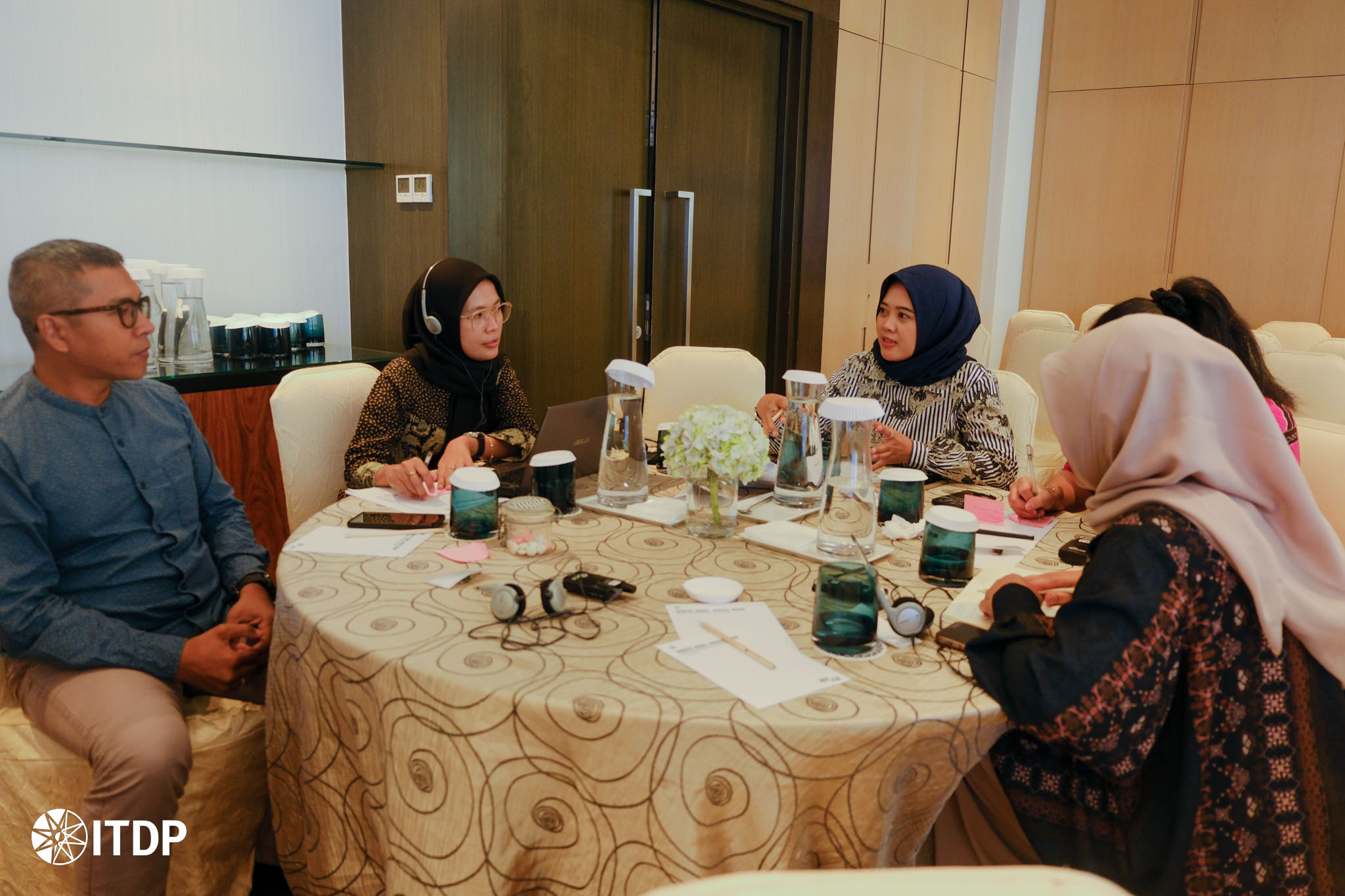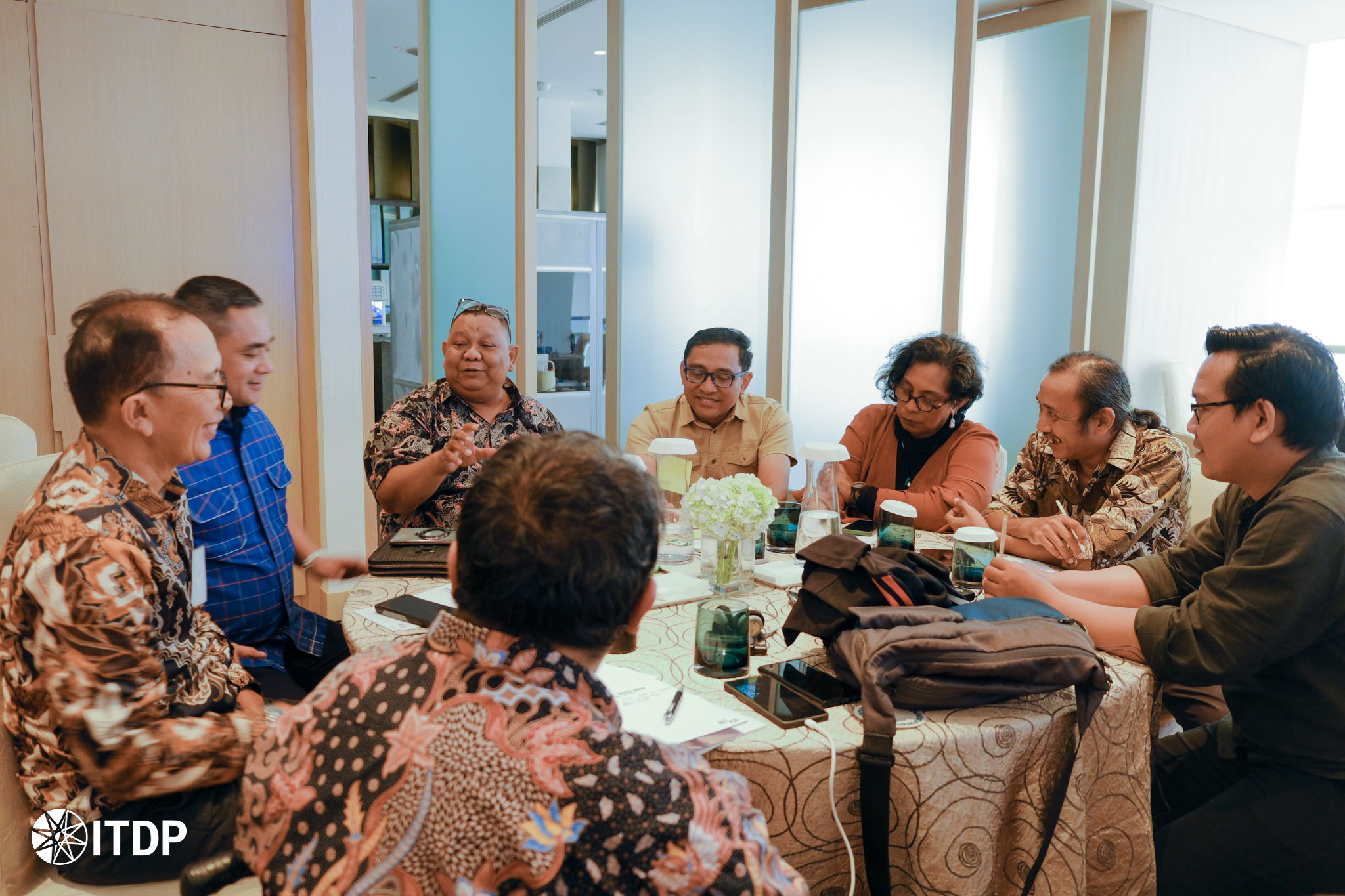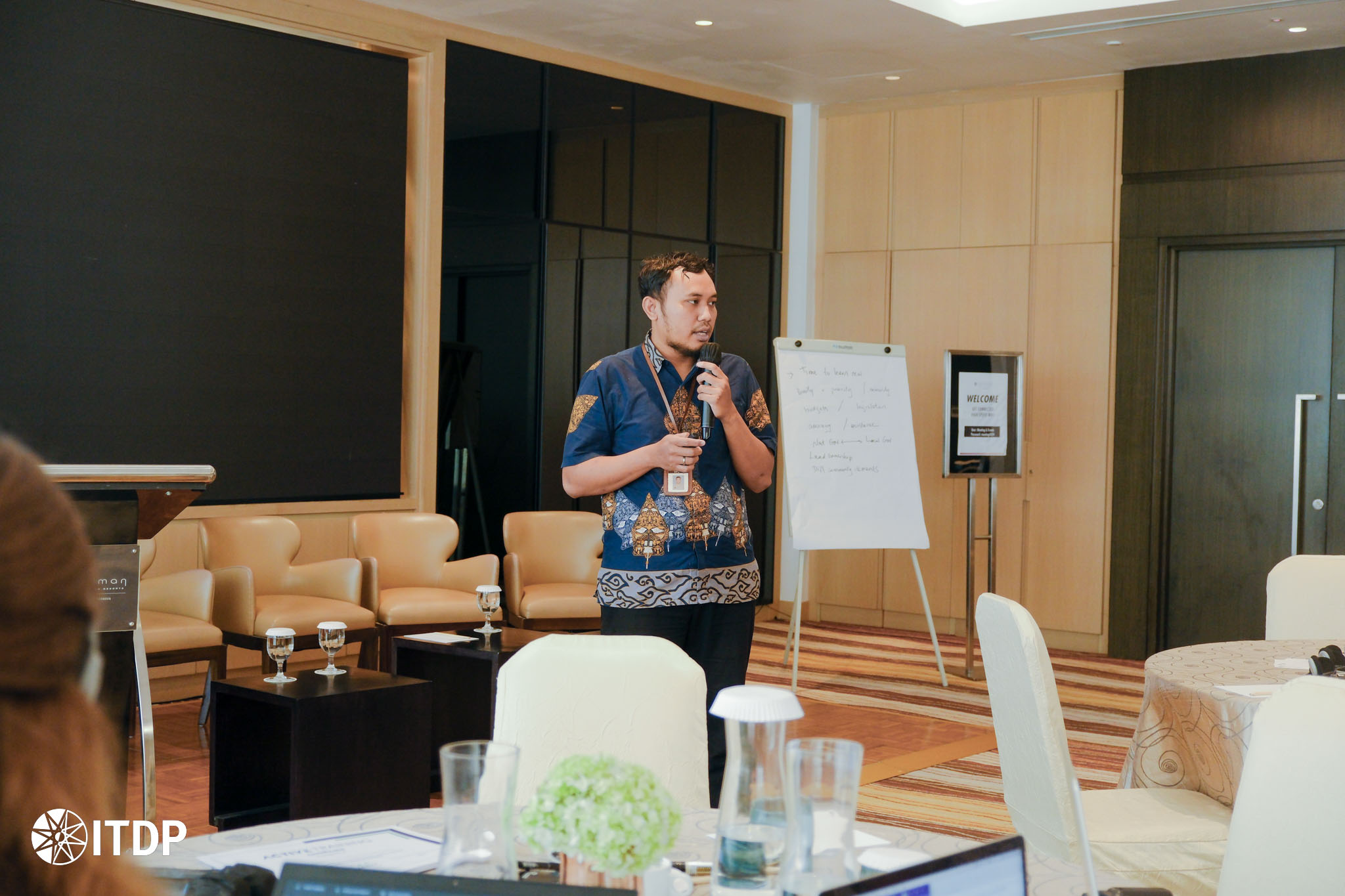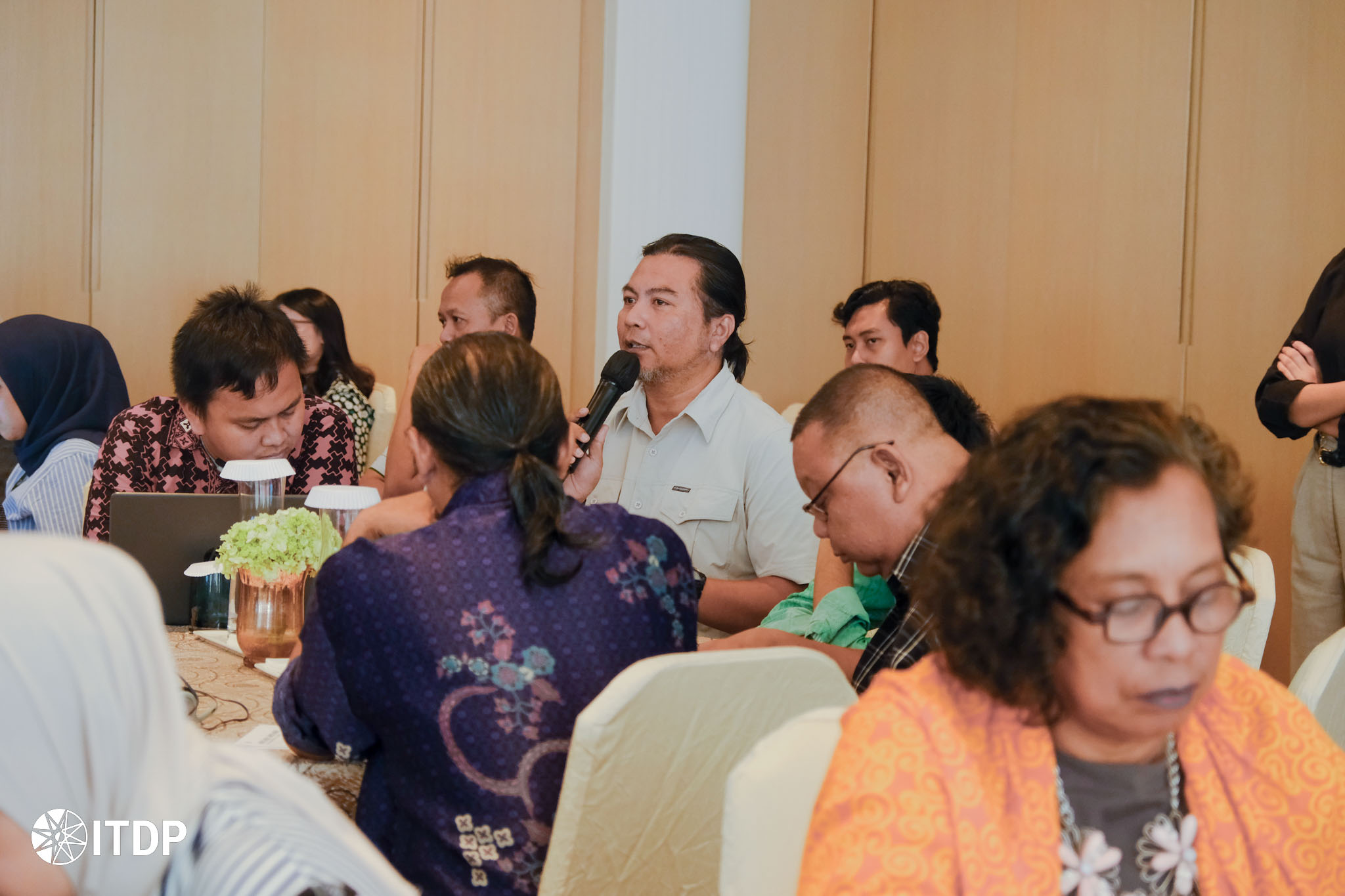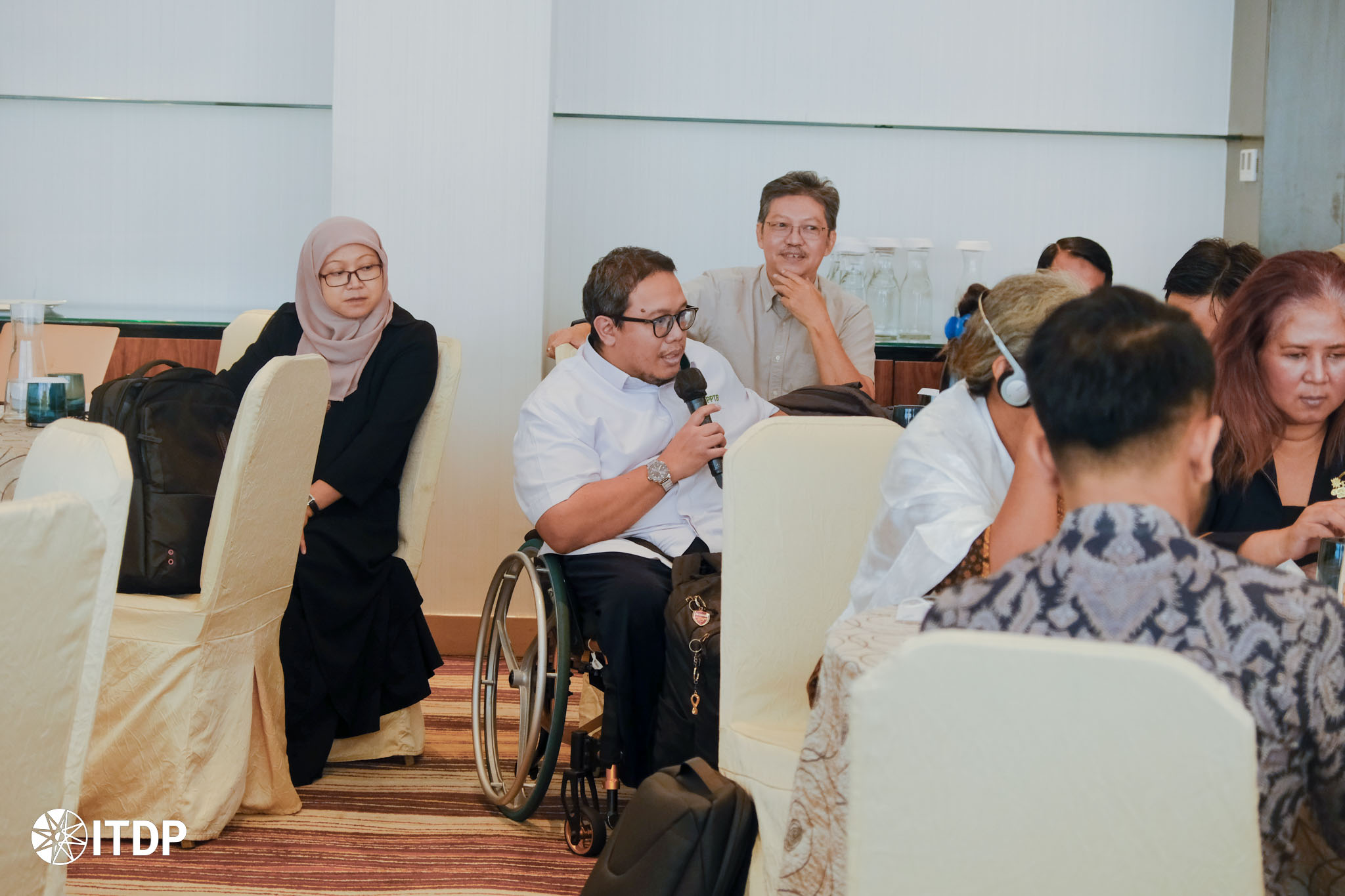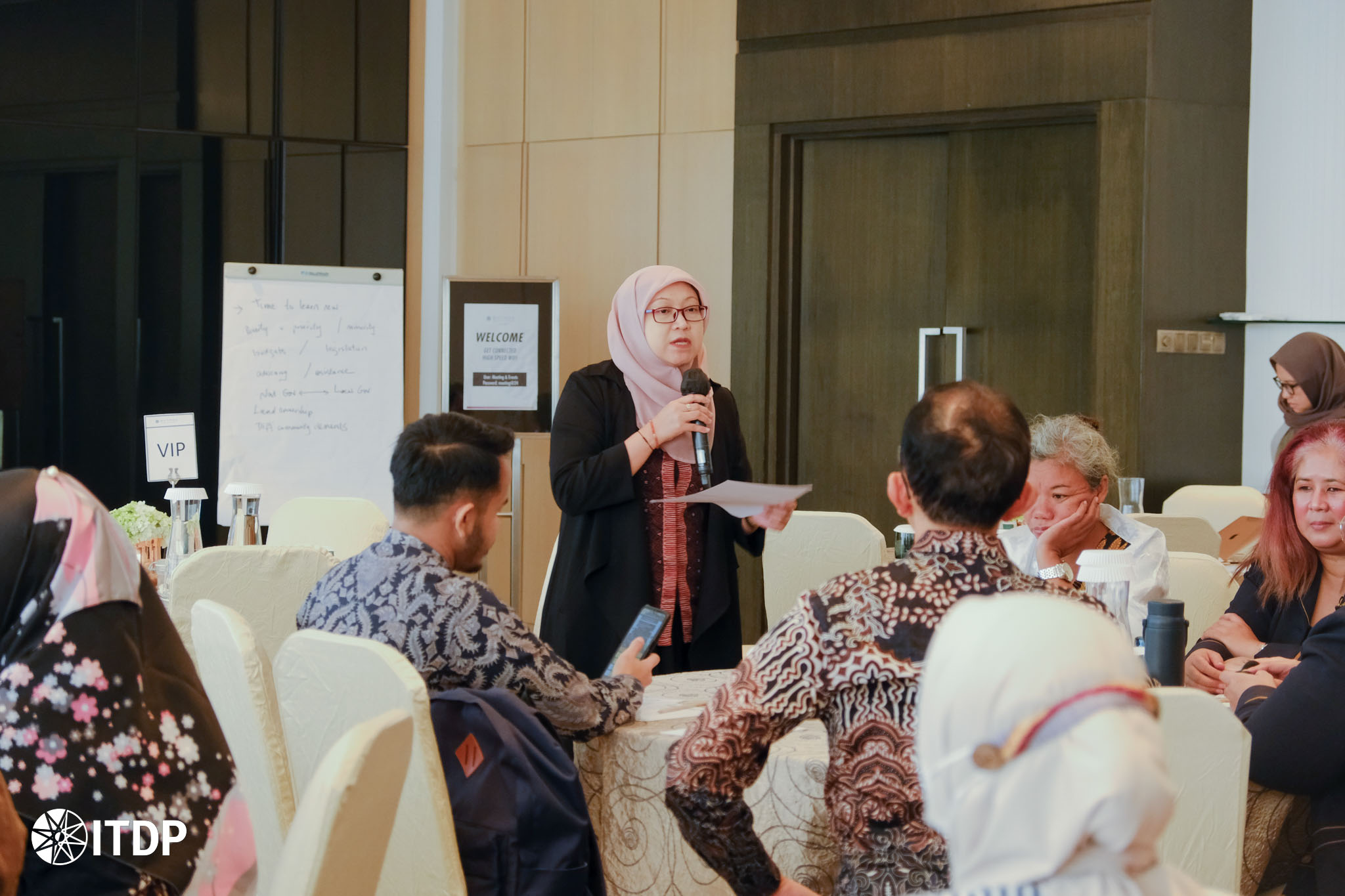July 17, 2024
Empowering Sustainable Mobility: Low Emission, Inclusive, and Active Transport in Indonesia
Series of Activities to Improve the Quality of Active and Inclusive Mobility in Indonesian Cities.
ITDP Indonesia, in collaboration with the United Nations Environment Programme (UNEP), Clean Air Asia, Walk21 Foundation and supported by the Embassy of the Netherlands to Indonesia, held the “Empowering Sustainable Mobility: Low Emission, Inclusive, and Active Transport in Indonesia” at Pullman Hotel, Jakarta. The knowledge exchange and discussion series, which invited sustainable transportation practitioners and stakeholders from cities in Indonesia, was divided into eight sessions from July 9 to 11, 2024.
The event commenced with opening remarks from Ir. Yudha Handita Pandjiriawan M.T., M.B.A., Director of Road and Bridge Engineering, Directorate General of Spatial Planning and Development, Ministry of Public Works and Public Housing (PUPR), Yusuf Nugroho, ST, MT, Head of Subdirectorate of Motor Vehicle Type Test, and Barlev Nico Marhehe, Programme Management Officer, UNEP.
In his remarks, Yudha Handita Pandjiriawan emphasized that the Ministry of Public Works and Housing also encourages the improvement of the quality of non-motorized transportation through the preparation of regulations in the form of technical guidelines covering aspects of pedestrians, cycling facilities, and the feasibility of walking infrastructure in urban areas. “Through the Directorate General of Spatial Planning and Development, the Ministry of PUPR has various regulations for non-motorized transportation, including PUPR Regulation No.03/PRT/M/2024 concerning Guidelines for planning, providing, and utilizing pedestrian infrastructure and facilities, technical guideline No.05/P/BM/2021 concerning technical guidelines for cycling facilities, technical guideline No. 05/P/BM/2023 concerning technical guidelines for pedestrian facilities, and technical guideline No.05/O/BM/2023 concerning Determination of walking feasibility index in urban areas,” Yudha explained.
Yusuf Nugroho added in his remarks that the contribution of experts is valuable in assisting the transition to low-carbon, inclusive, and active transportation. Barlev Nico Marhehe agreed, explaining that it is essential to carry out the decarbonization process by changing behavior through low-carbon transportation and integrating urban mobility with walking and cycling.
In this series of workshops, ITDP Indonesia organized “Empowering Mobility: Driving Gender Equality in E-Mobility Initiatives in Indonesia,” “Active Mobility and Public Transport,” and a field trip session. Yeonju Jeong, Programme Management Officer, UNEP, opened the session “Empowering Mobility: Driving Gender Equality in E-Mobility Initiatives in Indonesia” by explaining UNEP’s program on electric mobility, which has been ongoing in 60 countries worldwide, while the study on electric mobility and gender is continuing in 6 countries, including Indonesia. Deliani Poetriayu Siregar, Urban Planning & Inclusivity Manager of ITDP Indonesia, added in her presentation that electrification is an opportunity to increase inclusivity for vulnerable groups, especially women.
The presentation session proceeded with the dissemination of ITDP Indonesia’s study, in partnership with the United Nations Environment Programme (UNEP), on “E-Mobility as a Driver for Change Indonesia“. Kasih Maharani Sabandar, Inclusive Urban Planning Associate of ITDP Indonesia, in her presentation, explained the differences in mobility between women and men. Furthermore, Kasih also explained the findings and recommendations obtained from the study, which included four aspects of gender equality: women as users of electric mobility, women as electric mobility workers, gender impacts on electric mobility infrastructure, and women as decision makers in the electric mobility sector.
The event continued with a panel discussion moderated by Deliani Poetriayu Siregar, Urban Planning & Inclusivity Manager of ITDP Indonesia, with Mayangsari Dian Irwantari, Director of Finance, HR and Business Support, PT Transportasi Jakarta (Transjakarta), Rivana Mezaya, Director of Digital and Sustainability, Grab Indonesia, Surya Putra, Research Associate of ARC UI for Energy Transition Research in DKI Jakarta and Bali, and Indra Gunawan, Expert Staff to the Minister for Law and Human Rights, Ministry of Women’s Empowerment and Child Protection (KemenPPPA), as speakers. This panel discussion addressed initiatives for gender mainstream in electric mobility, featuring responses from Daryono, Operations Manager of Mayasari Bakti, a representative of one of Transjakarta’s electric bus operators.
After lunch, H.E. Lambert Grijns, Ambassador of the Kingdom of the Netherlands to Indonesia, Timor Leste, and ASEAN, delivered a welcome speech to open the knowledge-sharing session on active mobility from various cities worldwide. The session began with presentations from Hussein Heykal, Policy Analyst, Directorate General of Highways, Ministry of PUPR; Janene Tuniz, Sustainable Mobility Officer, UNEP; Bronwen Thornton, Chief Executive Officer, Walk21 Foundation, and Natalia Tanan, Associate Expert Engineer, Directorate of Road and Bridge Engineering, Ministry of PUPR.
The next session was filled with presentations from Bronwen Thornton, Chief Executive Officer, Walk21 Foundation, Syifa Maudini, Transport Assistant ITDP Indonesia, and Mega Tarigan, Director of Operations and Maintenance MRT Jakarta, who discussed active mobility and public transportation. In the presentation, Syifa Maudini addressed the importance of physical integration between non-motorized transportation facilities and public transport, using case studies from Jakarta and Semarang.
The first day of the workshop concluded with a visit to the Dukuh Atas area to see Jakarta’s efforts in integrating active mobility with public transportation.
The second day of the workshop focused on understanding the needs of active mobility, including the development of pedestrian and cycling facilities, especially for various vulnerable groups. This session involved participants from various groups, including stakeholders from the cities of Jakarta, Medan, Bandung, Surakarta, Semarang, and Surabaya, as well as organizations and communities such as the Indonesian Women with Disabilities Association (HWDI), National Children’s Forum, The National Commission on Violence Against Women (Komnas Perempuan), Gerakan Aksesibilitas Umum Indonesia (GAUN), Transportologi, Jakarta City Transportation Council (DTKJ), and public transport operators.
The last day of the workshops concluded with a reflection on the three days of activities by completing a questionnaire on pedestrian and cyclist mobility issues by the participants. Furthermore, the participants also developed targets to achieve a pedestrian—and cyclist-friendly city for their respective areas.

